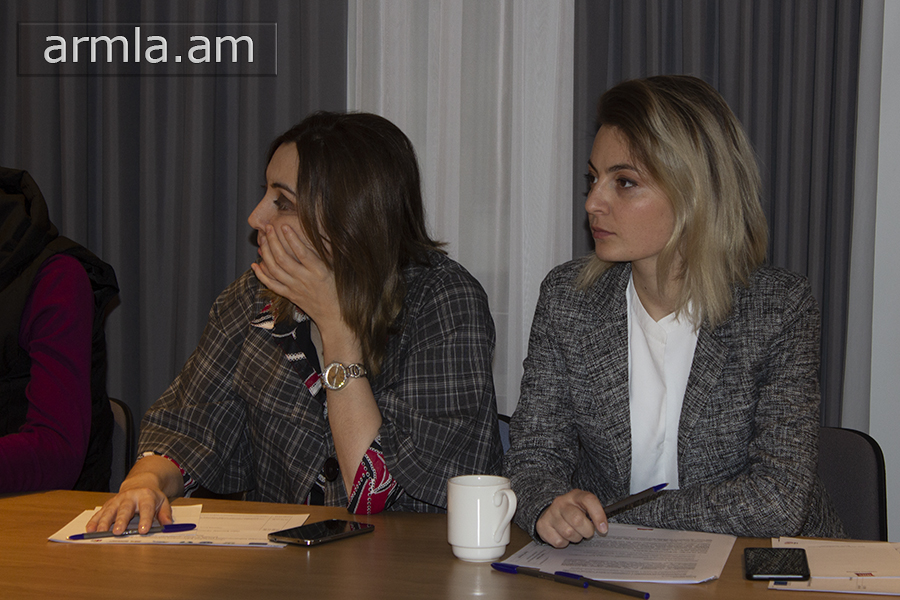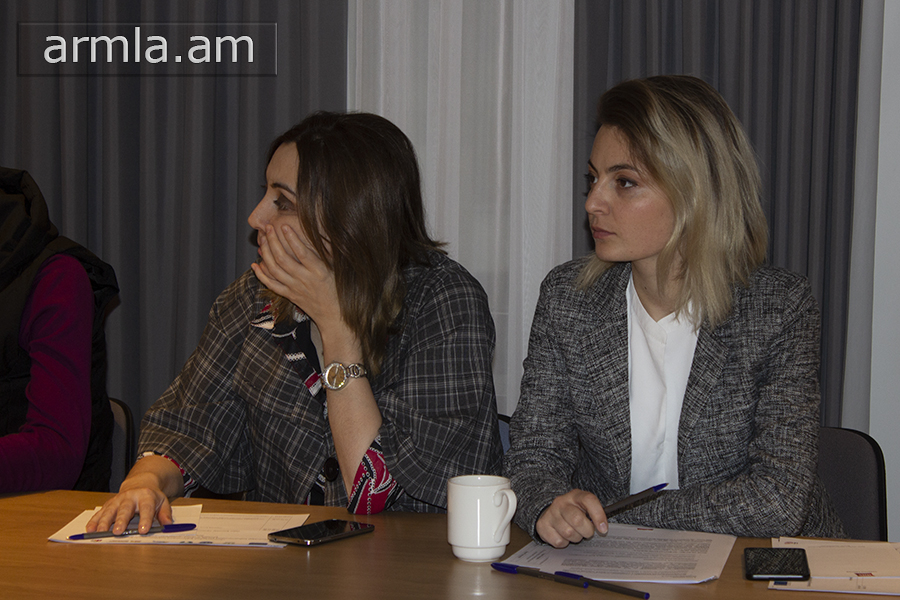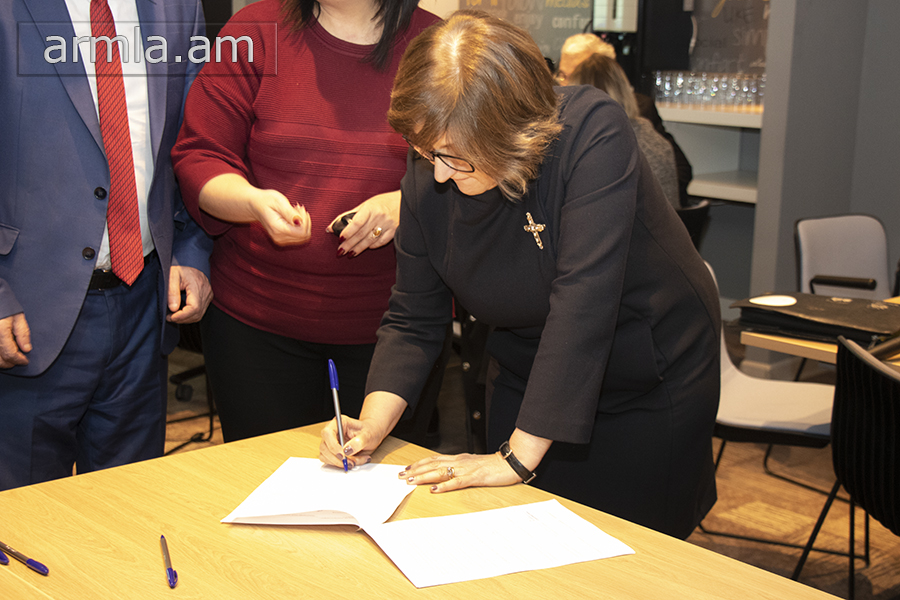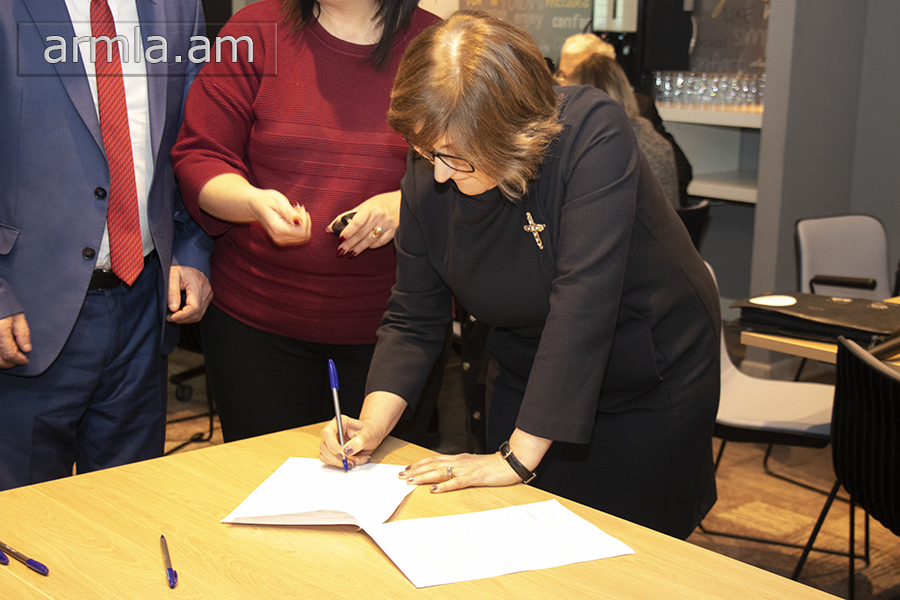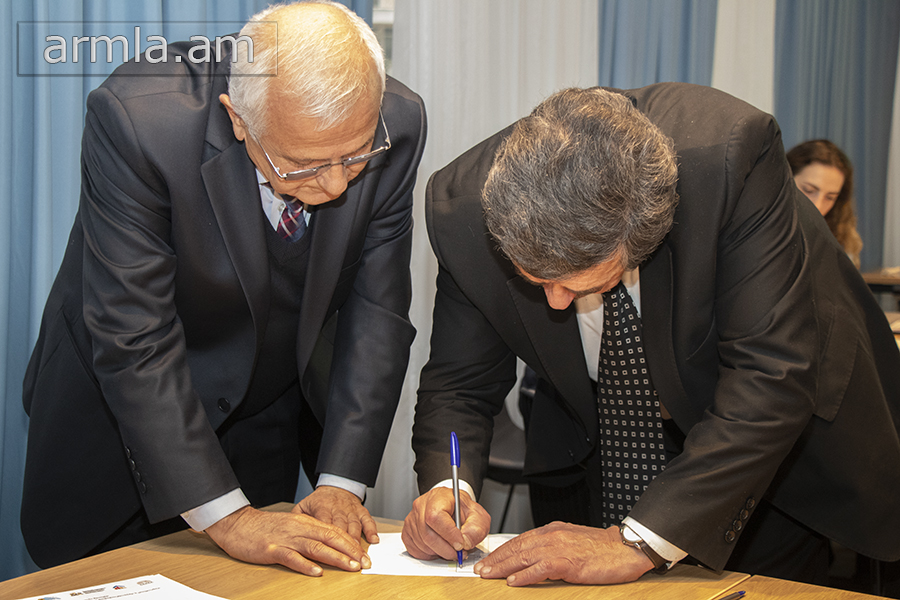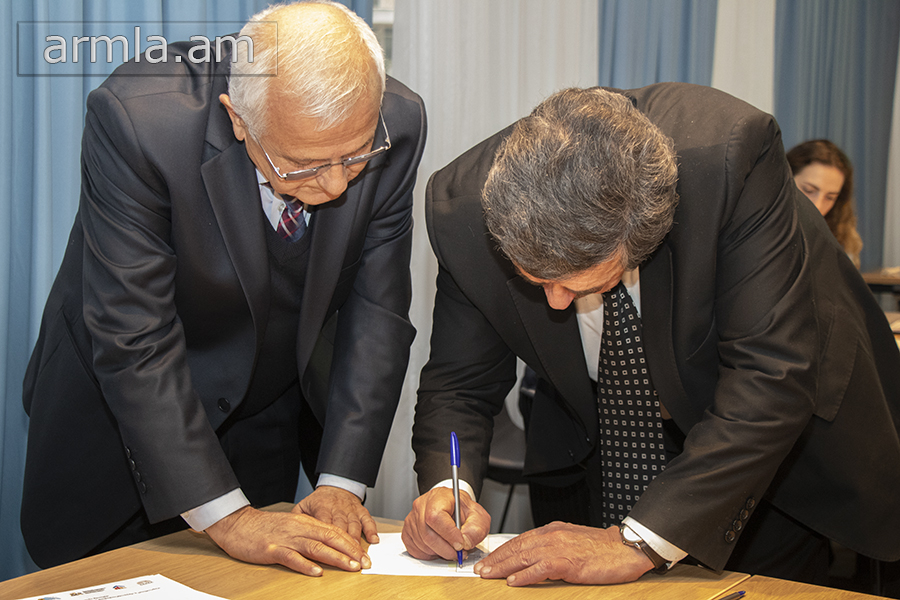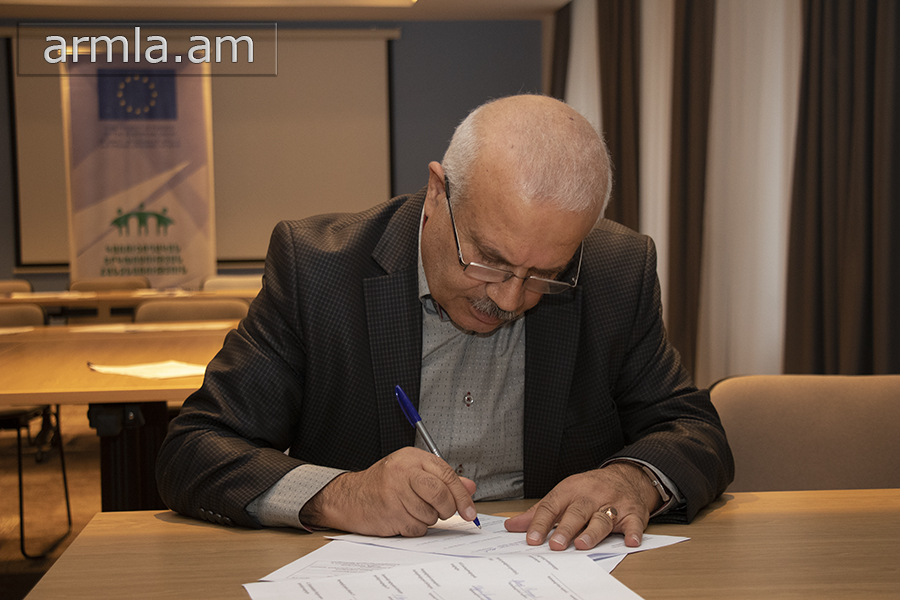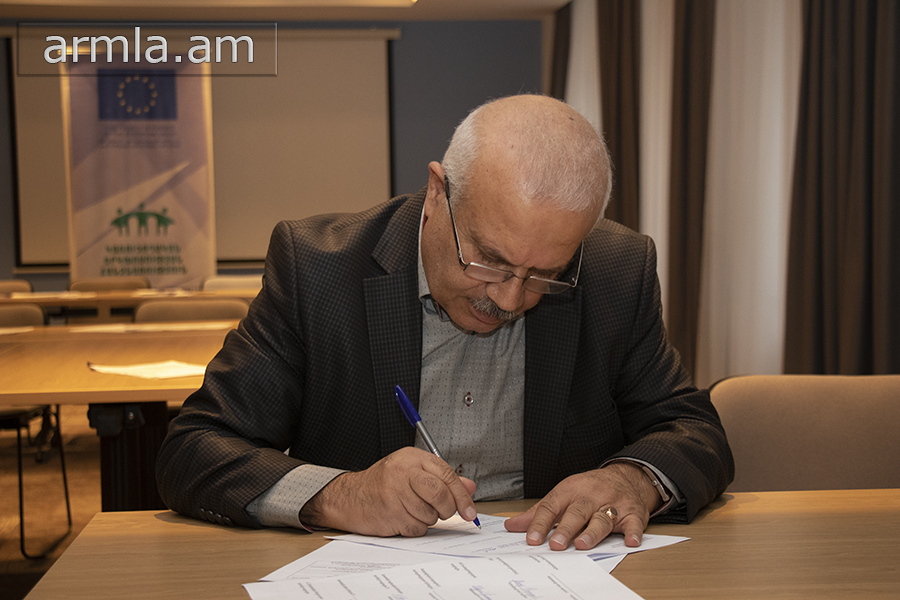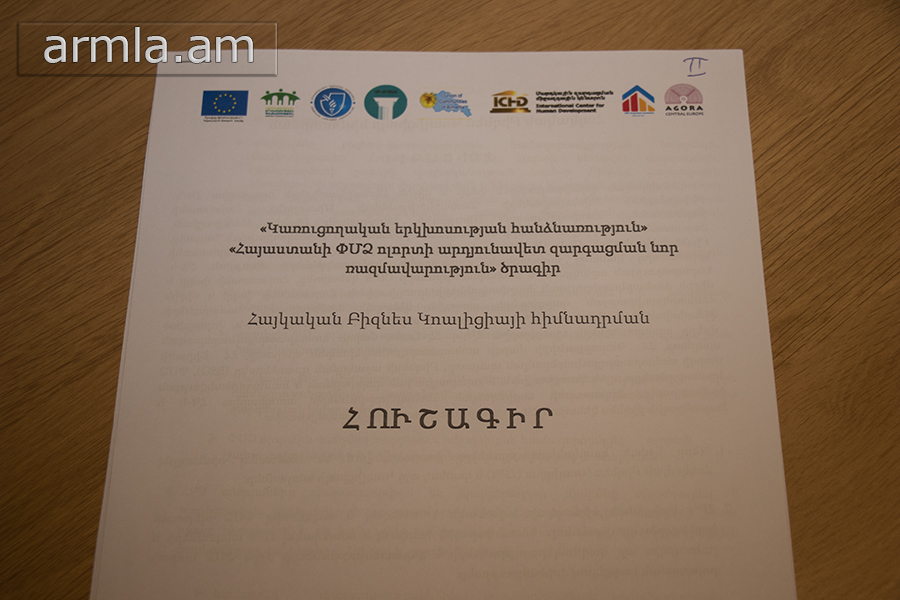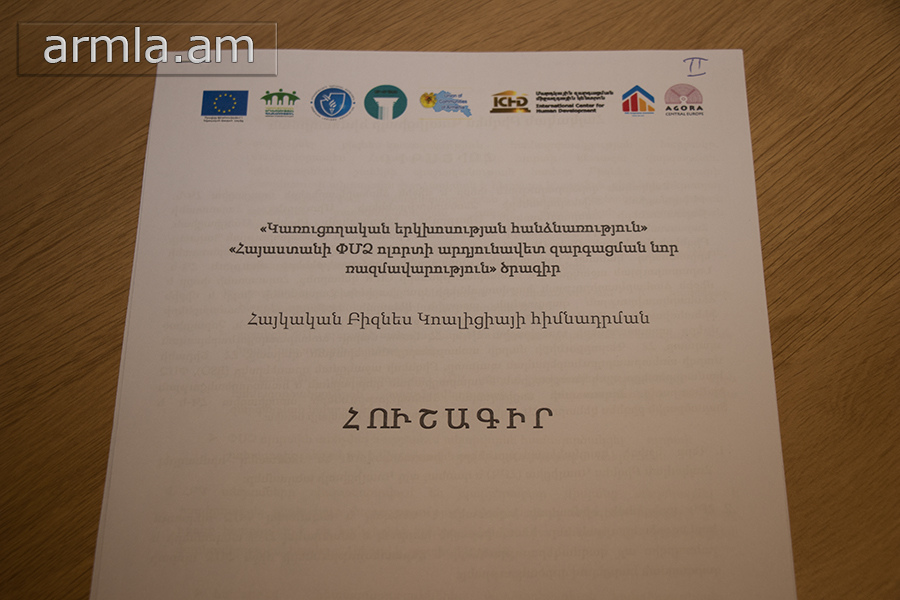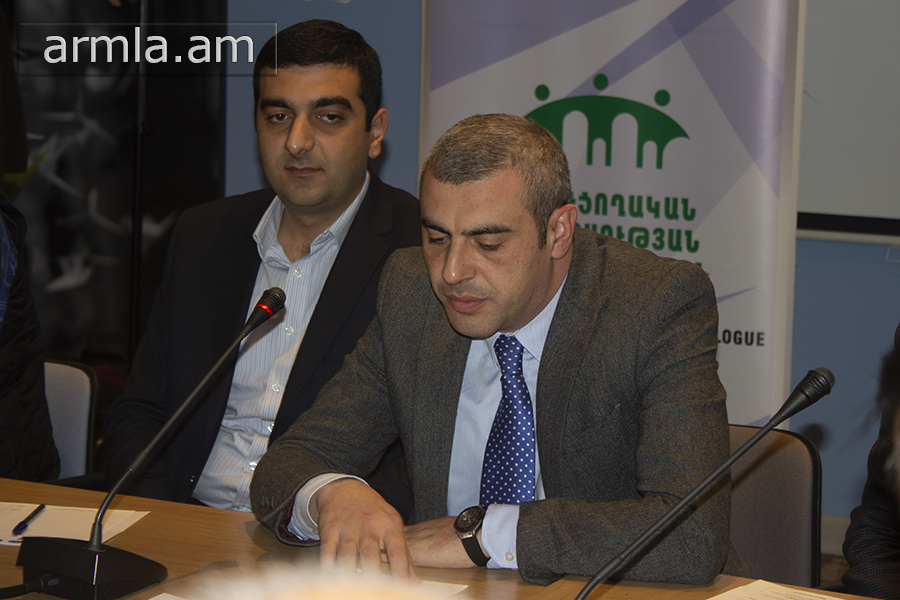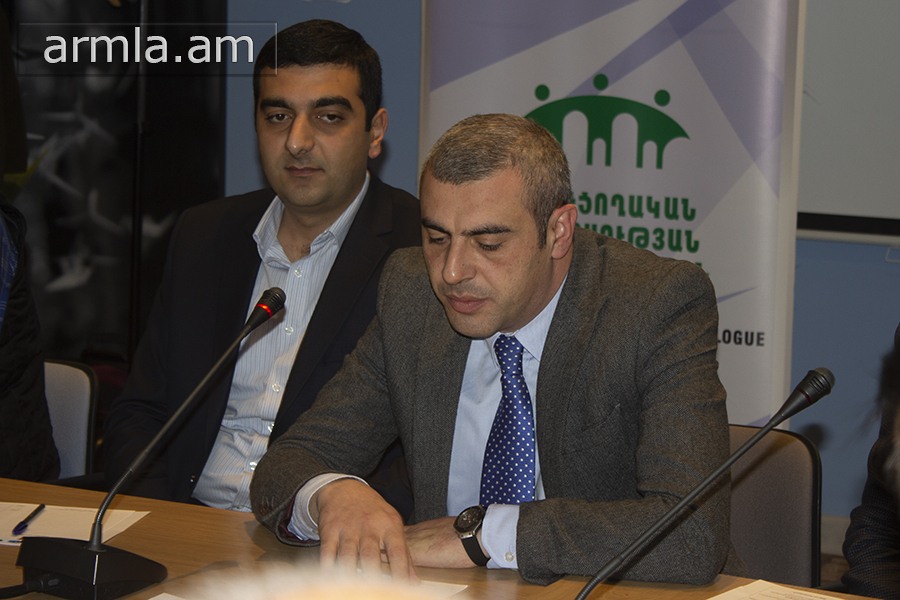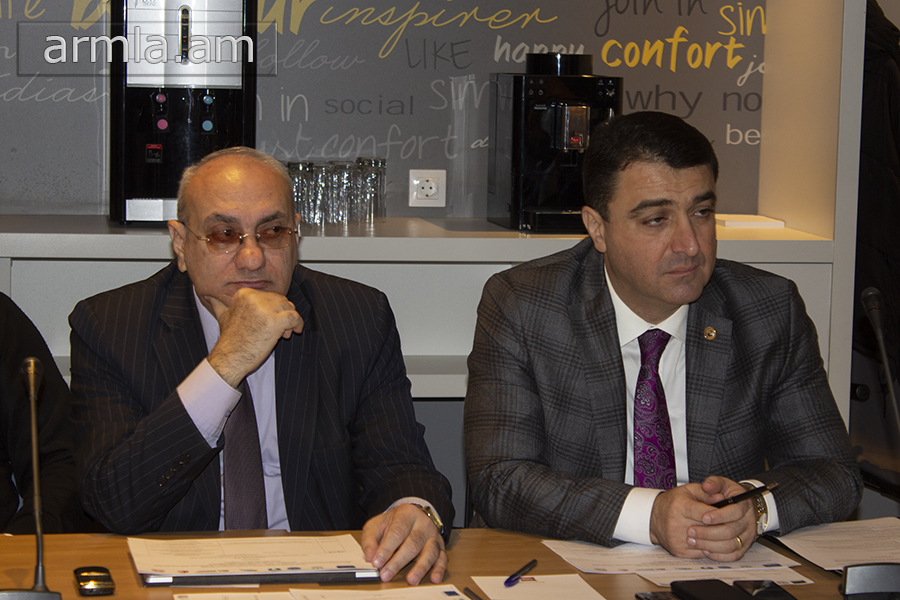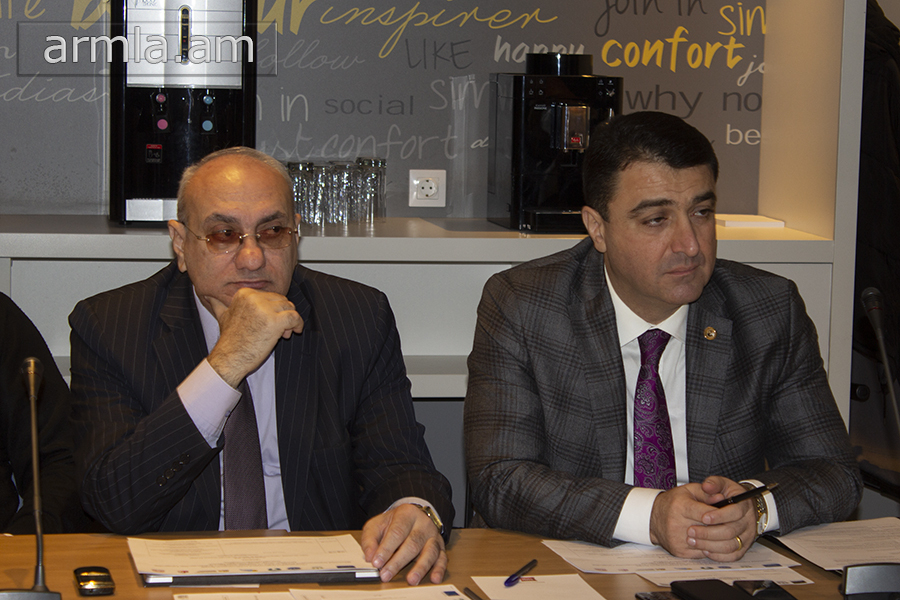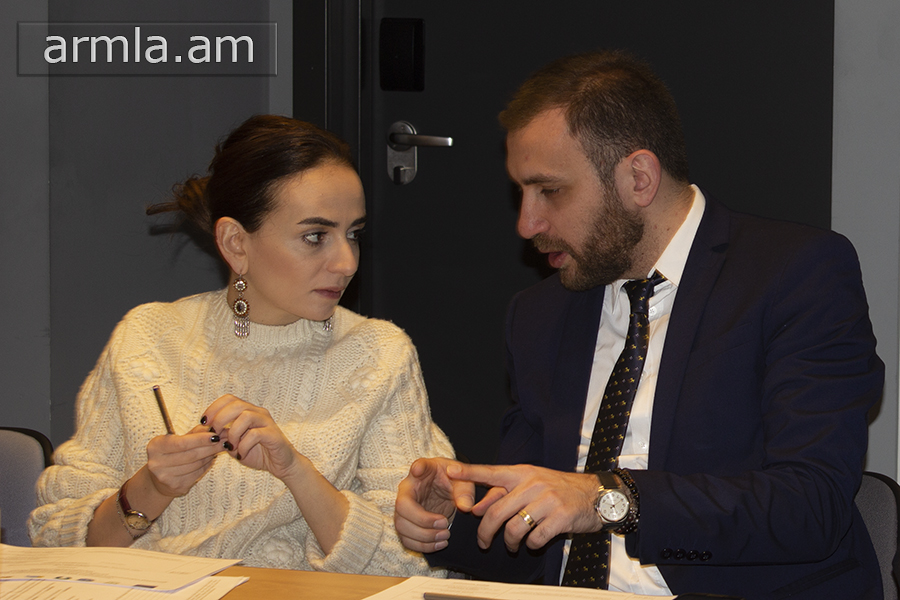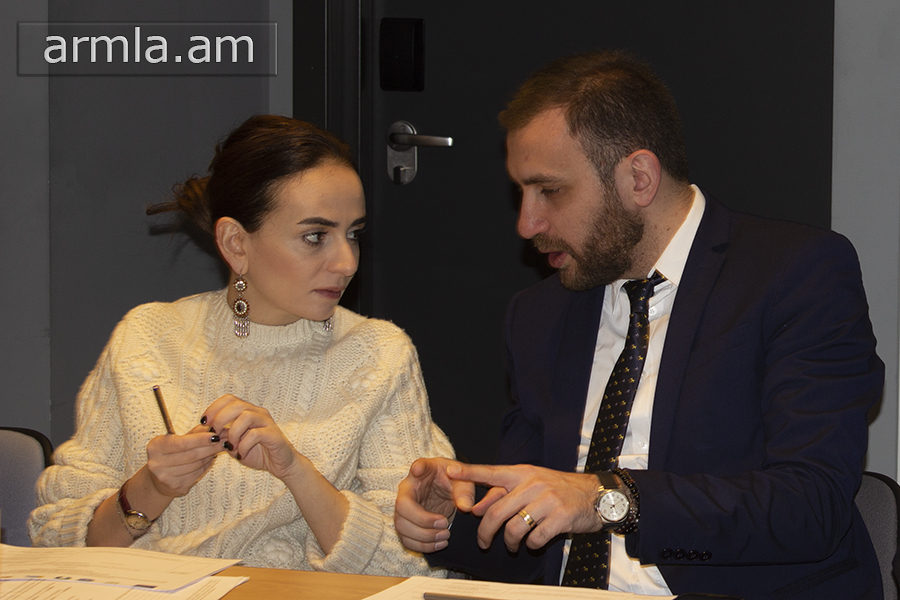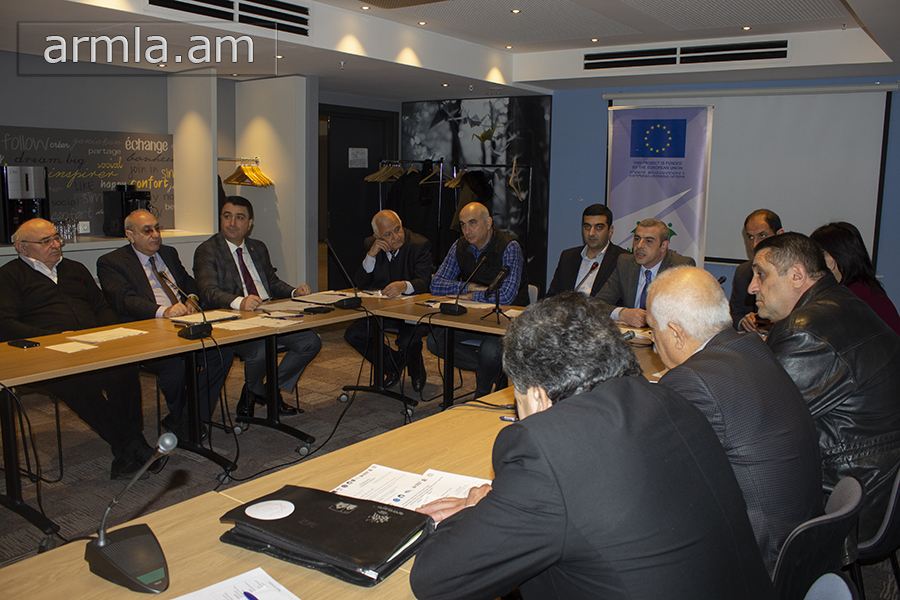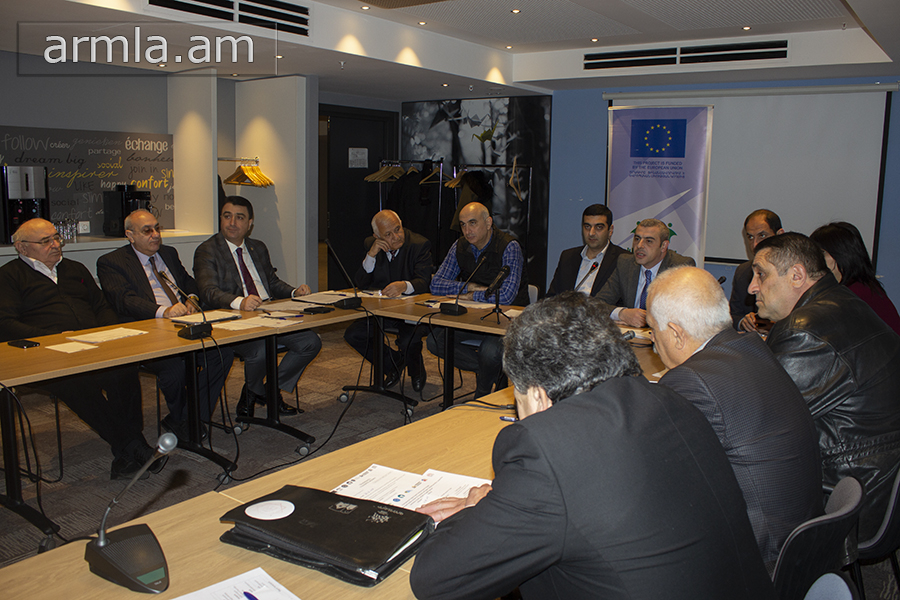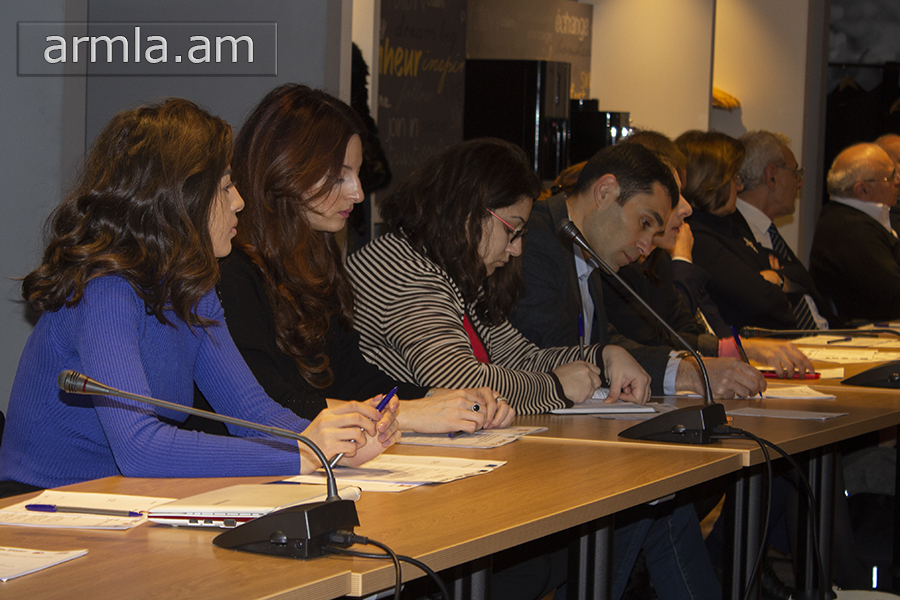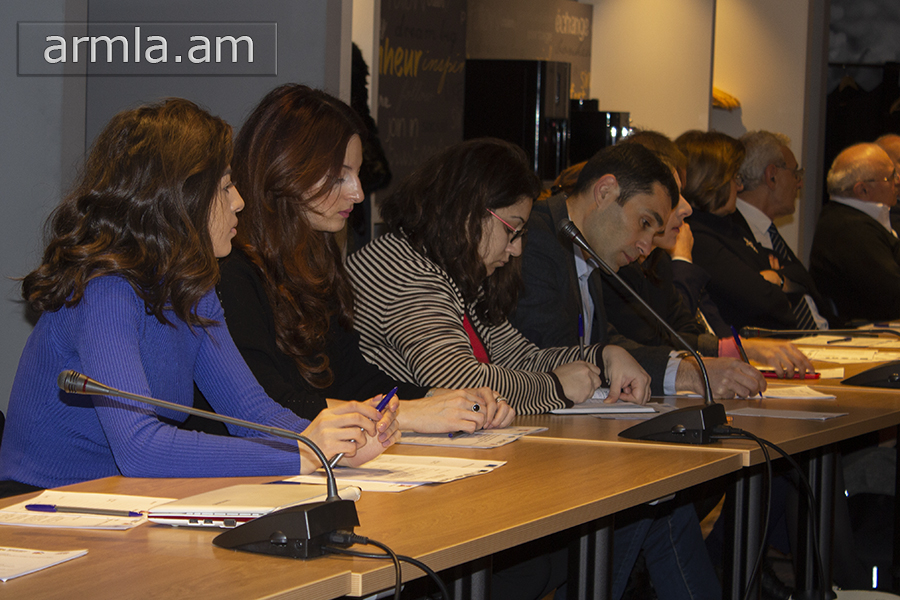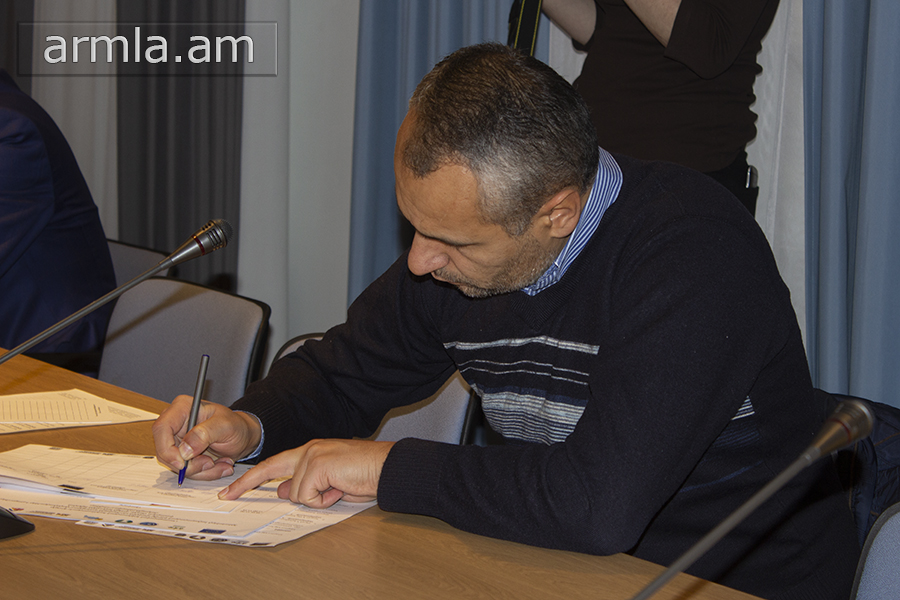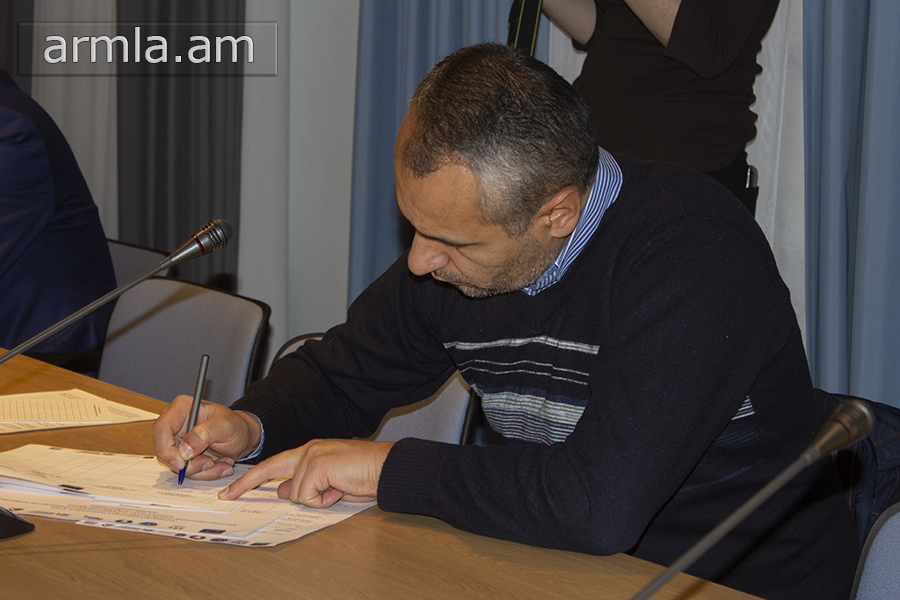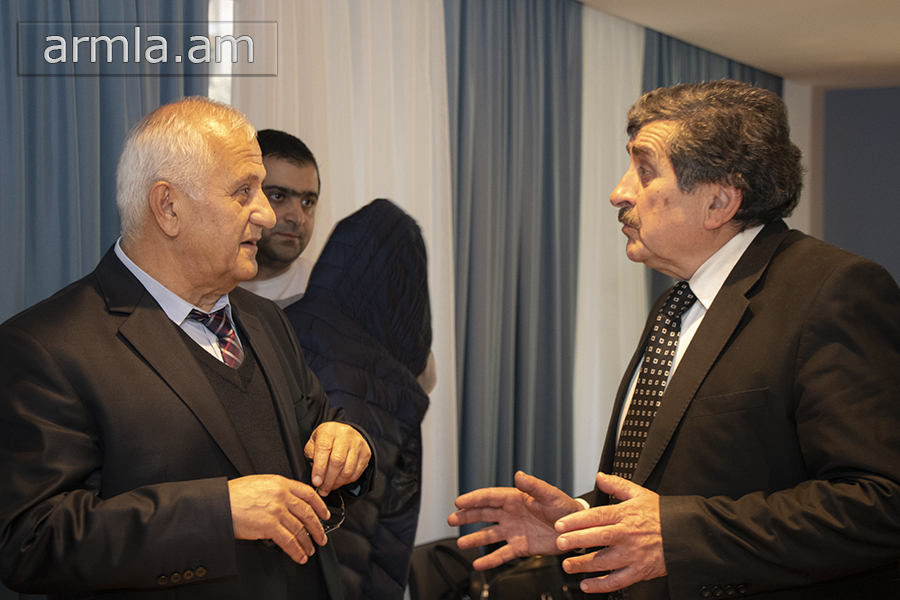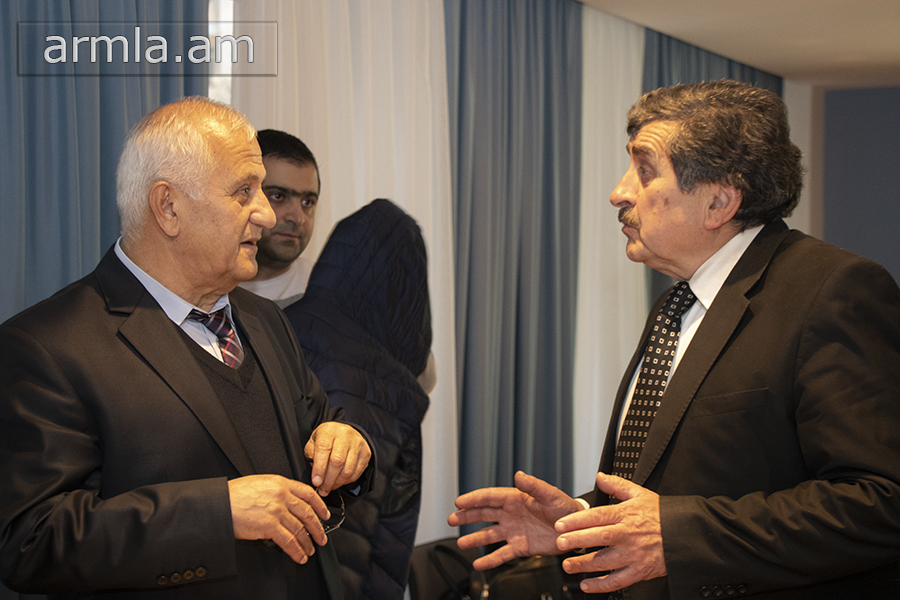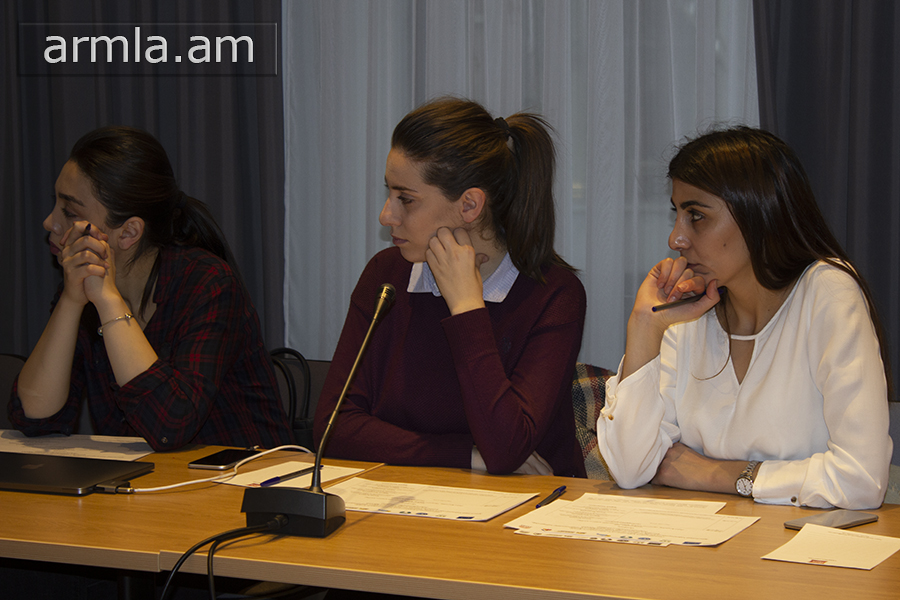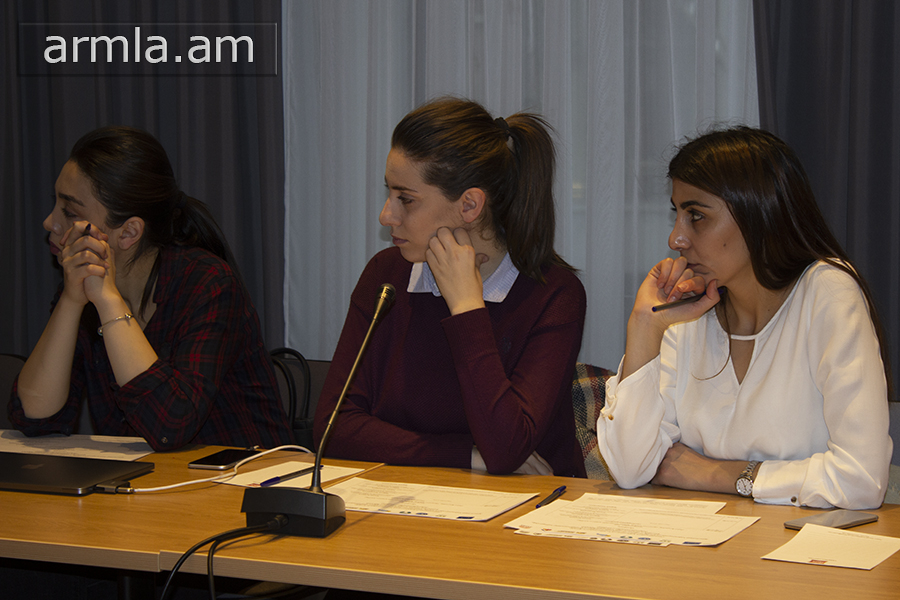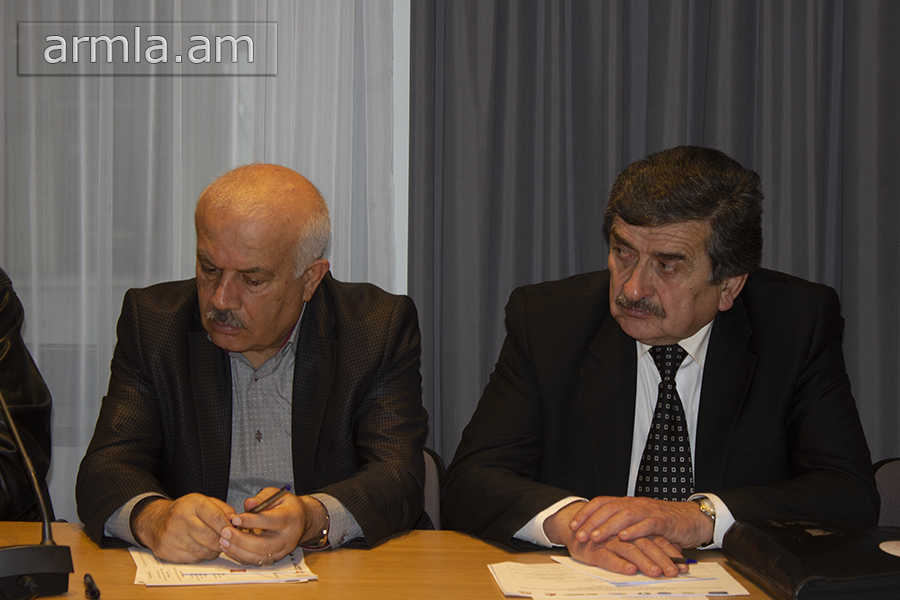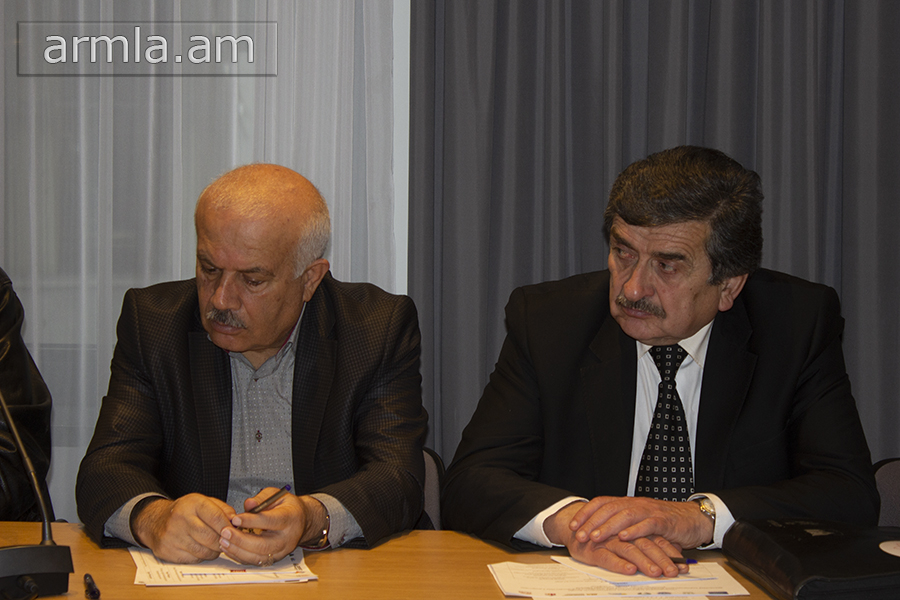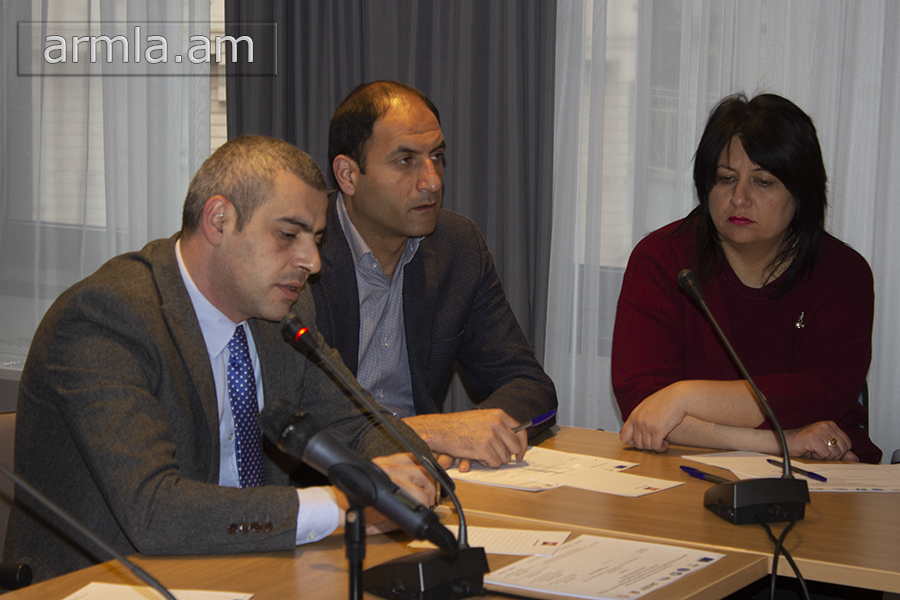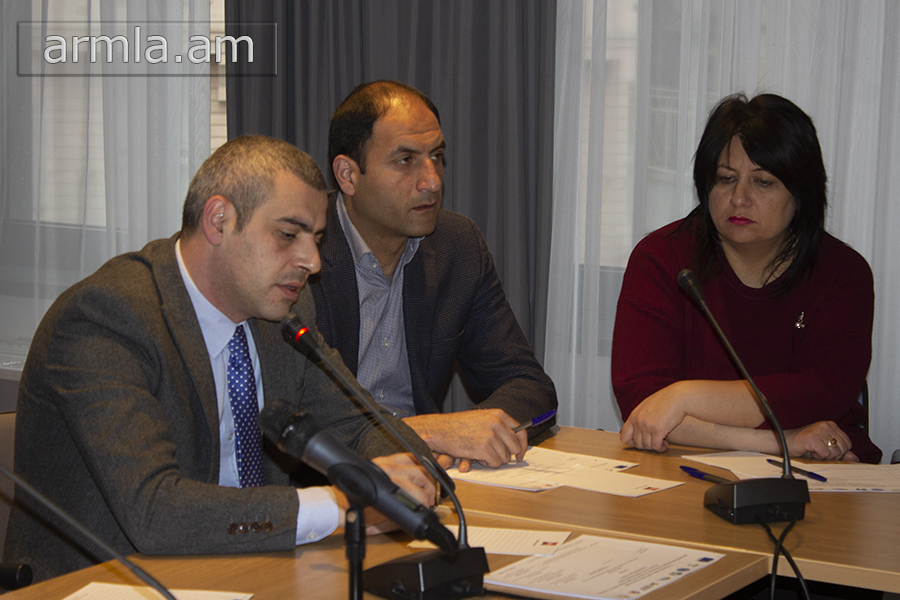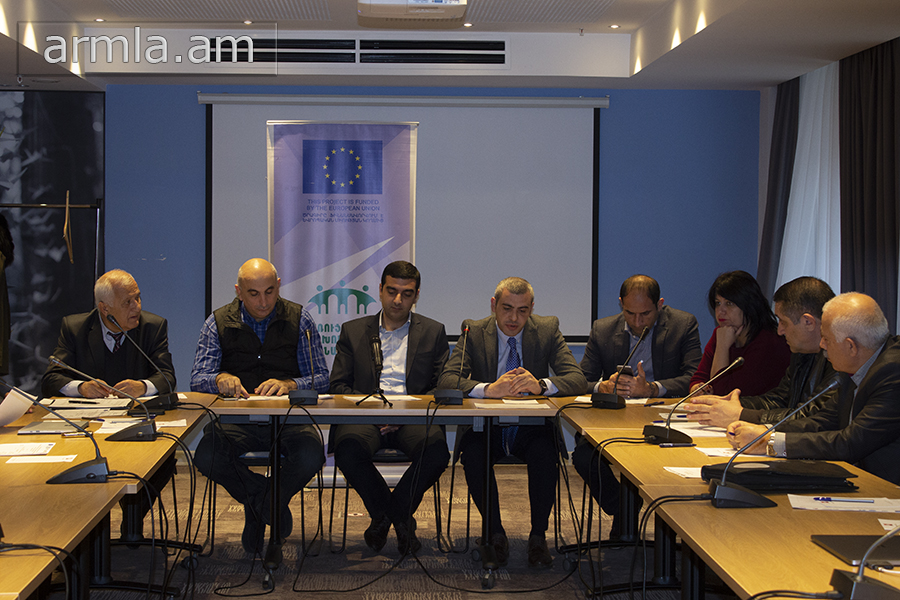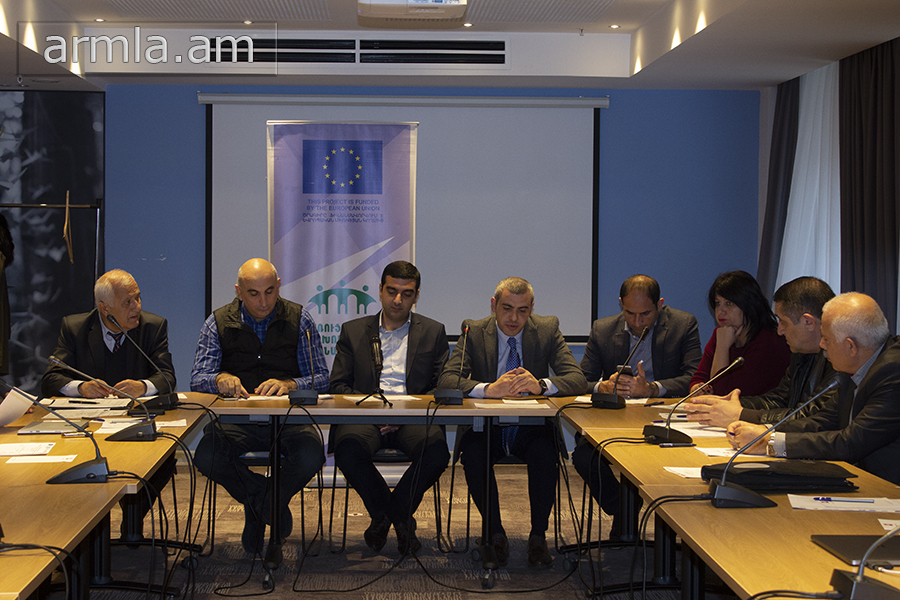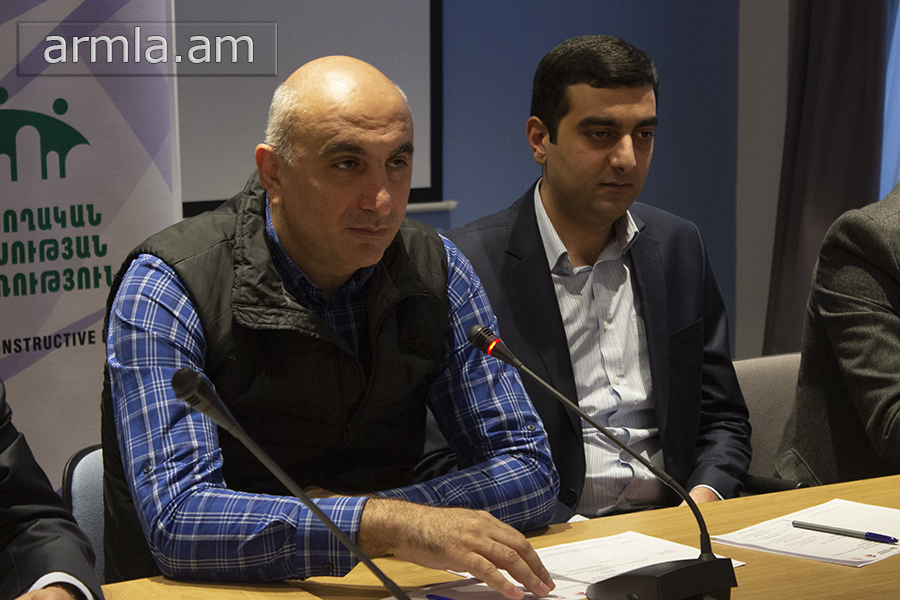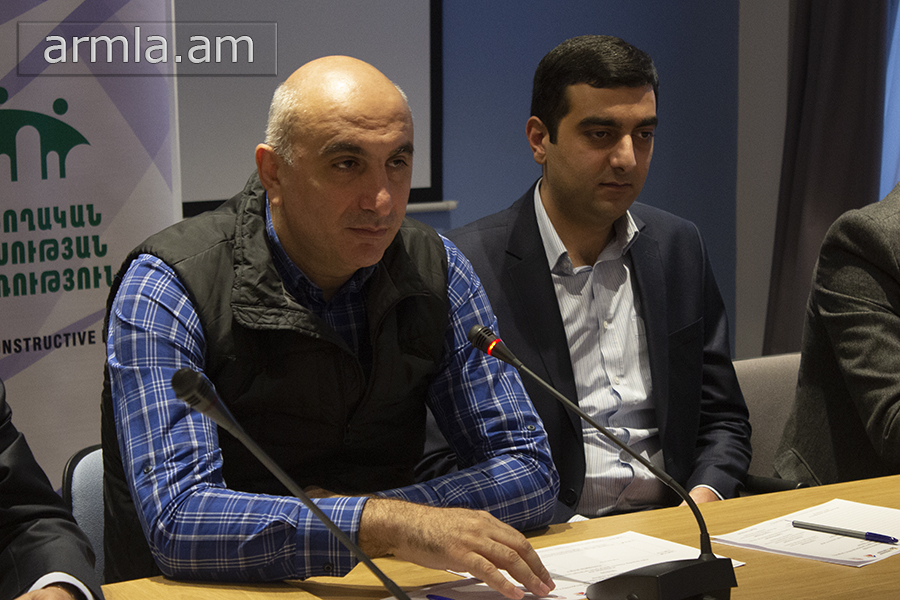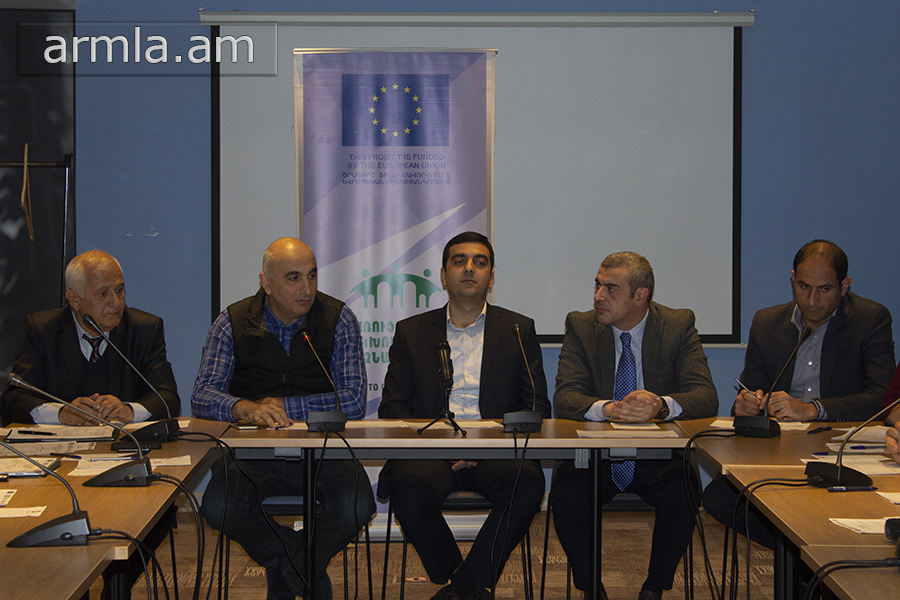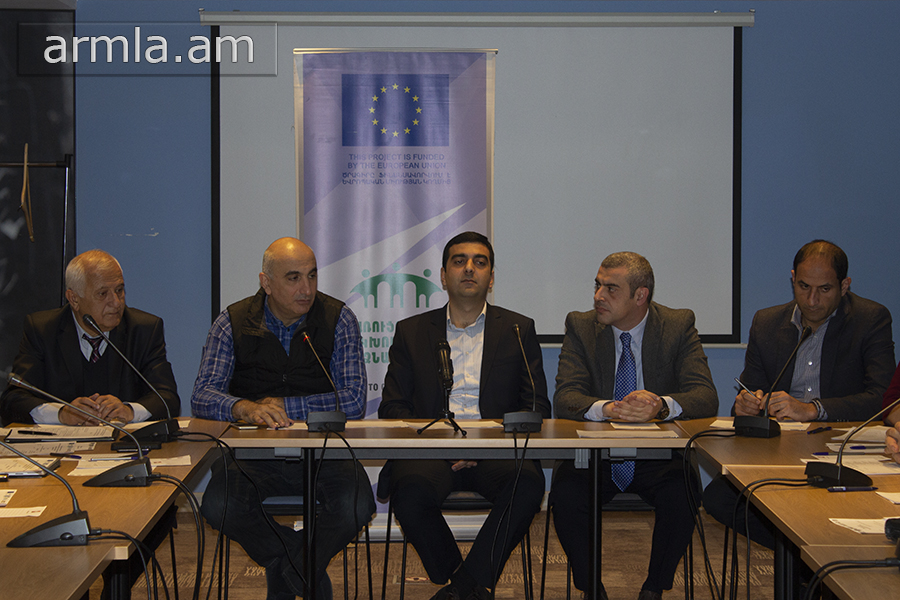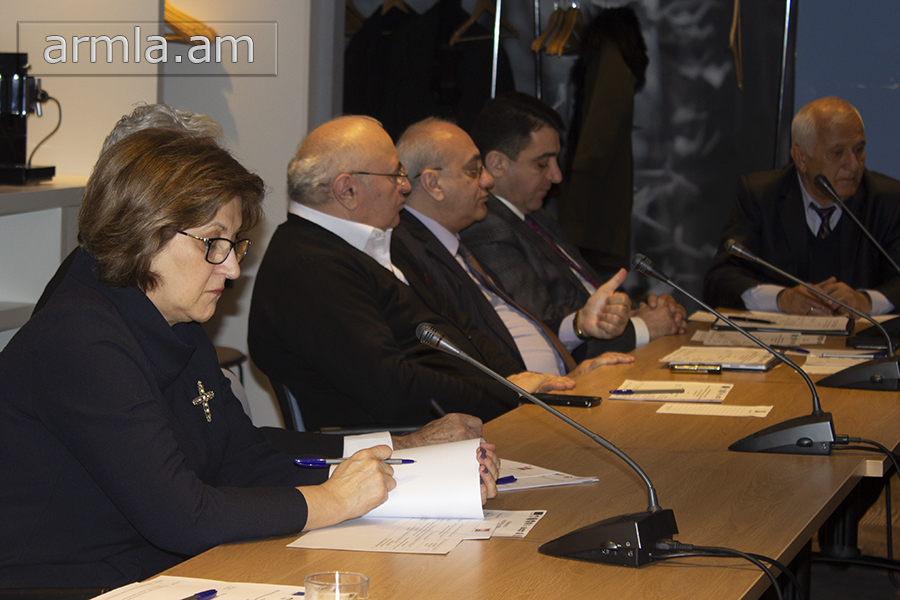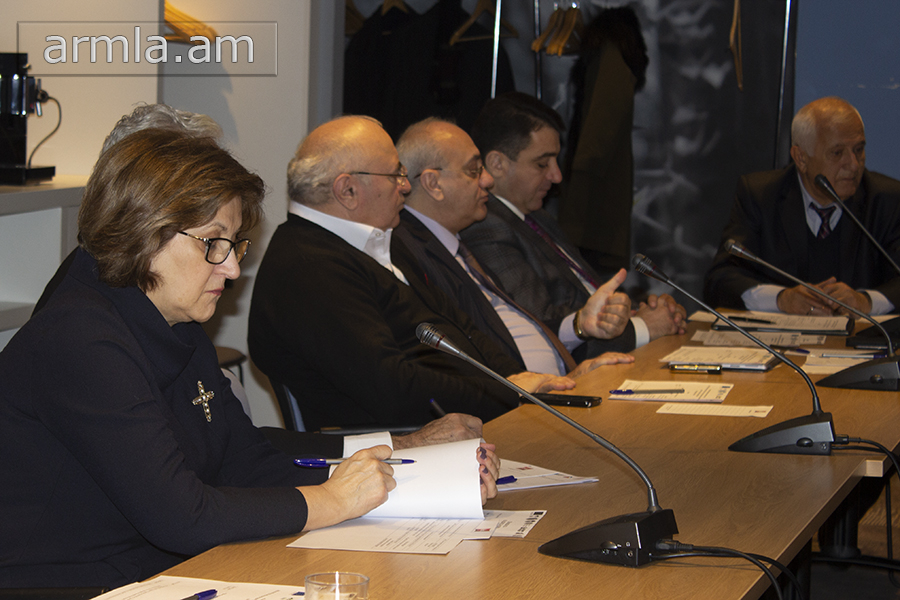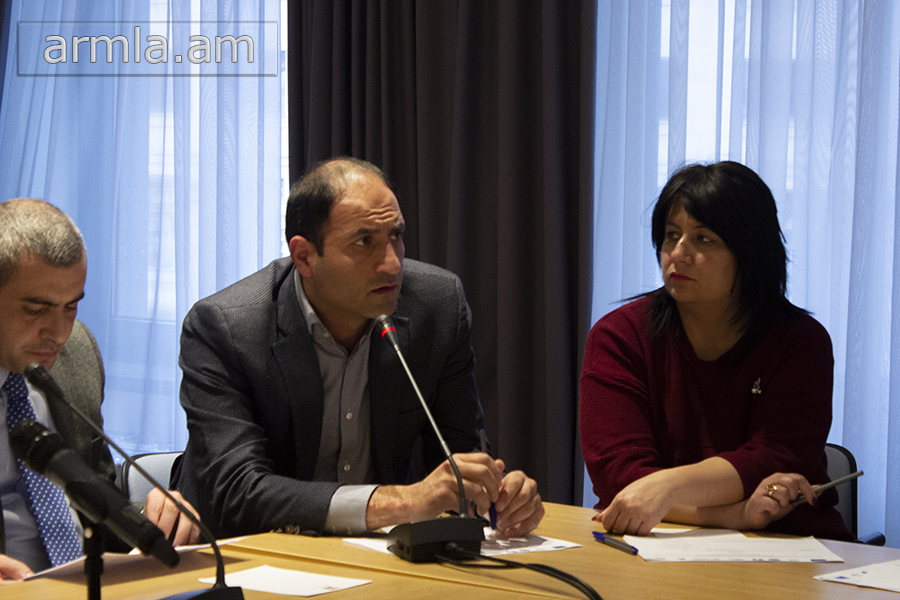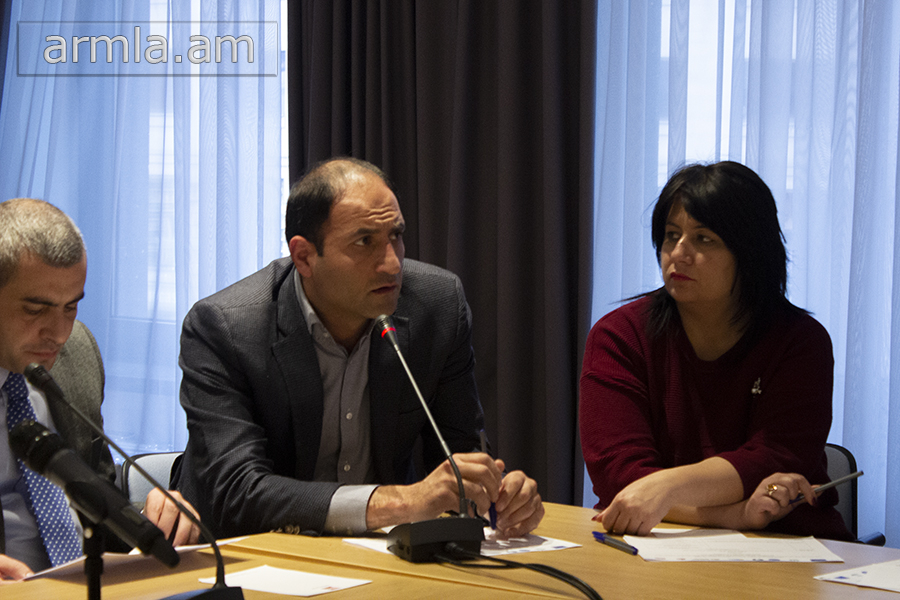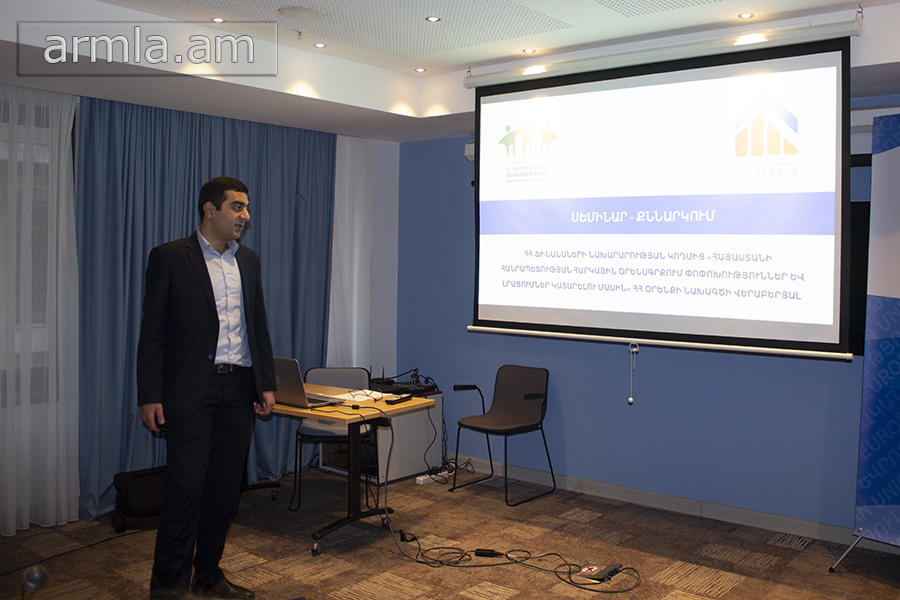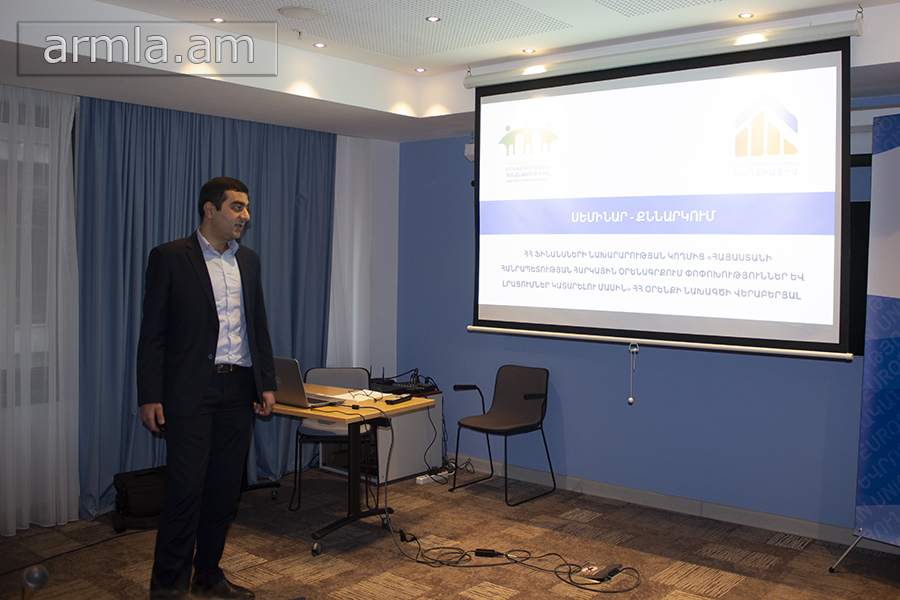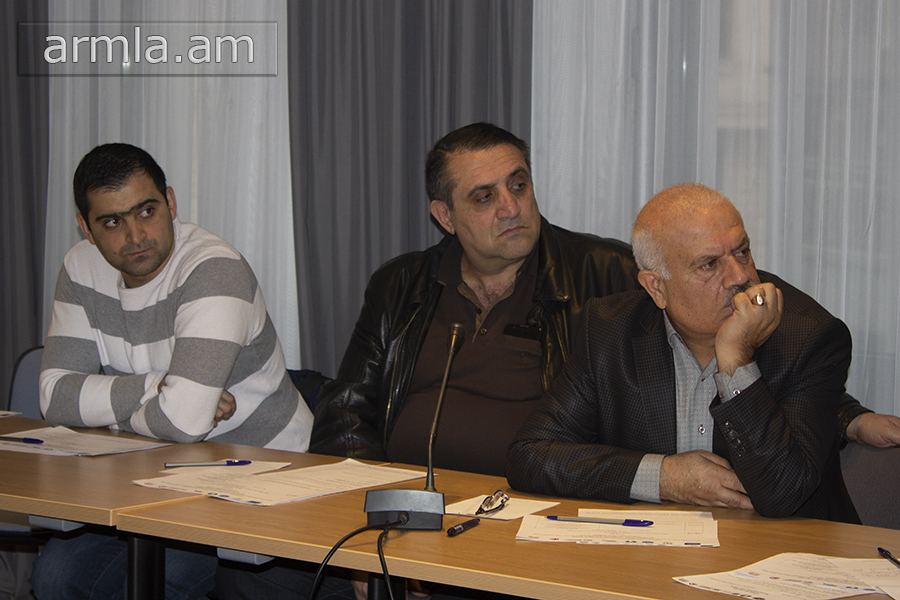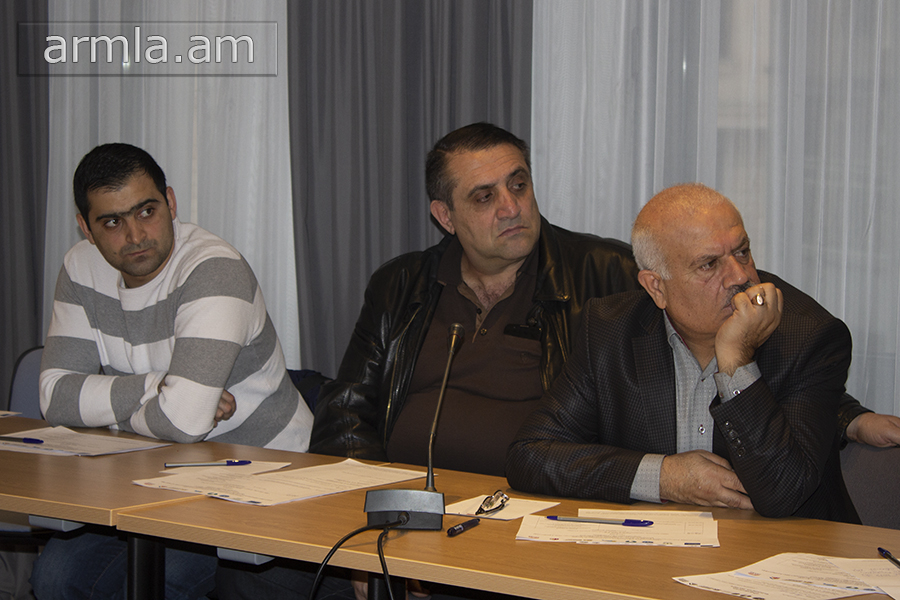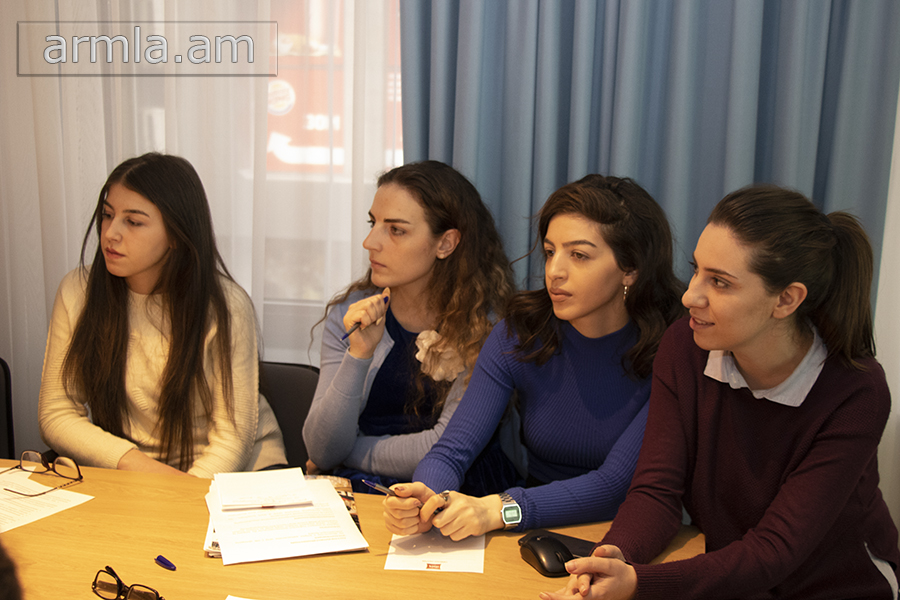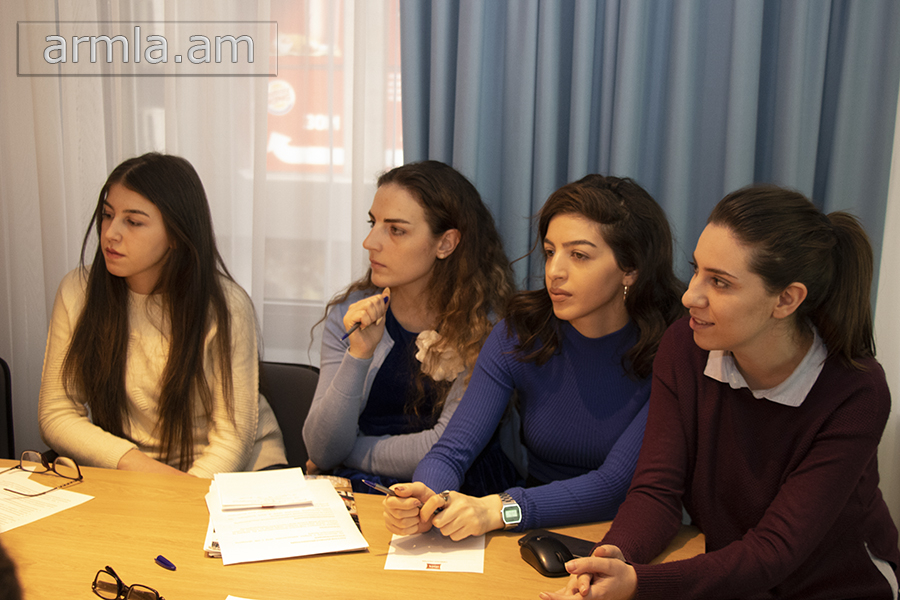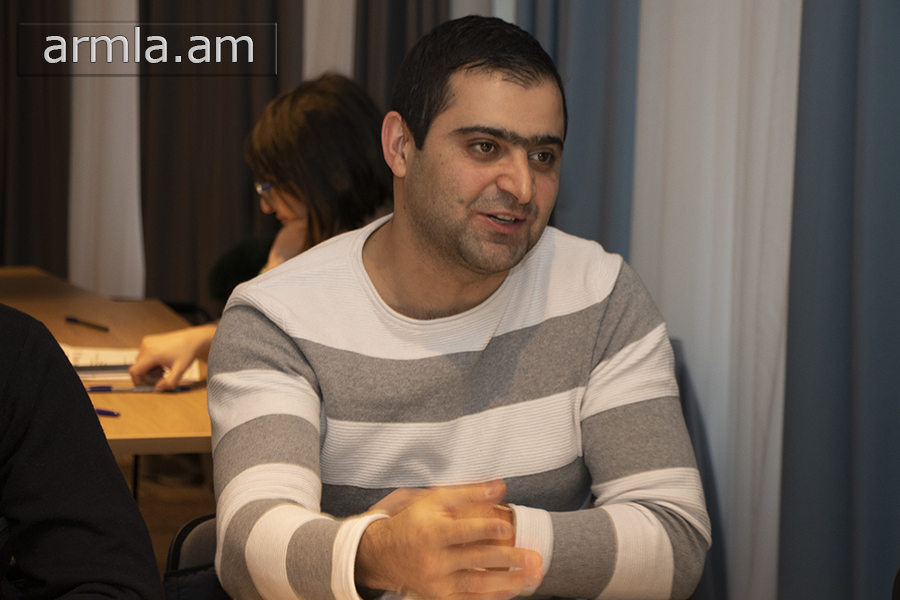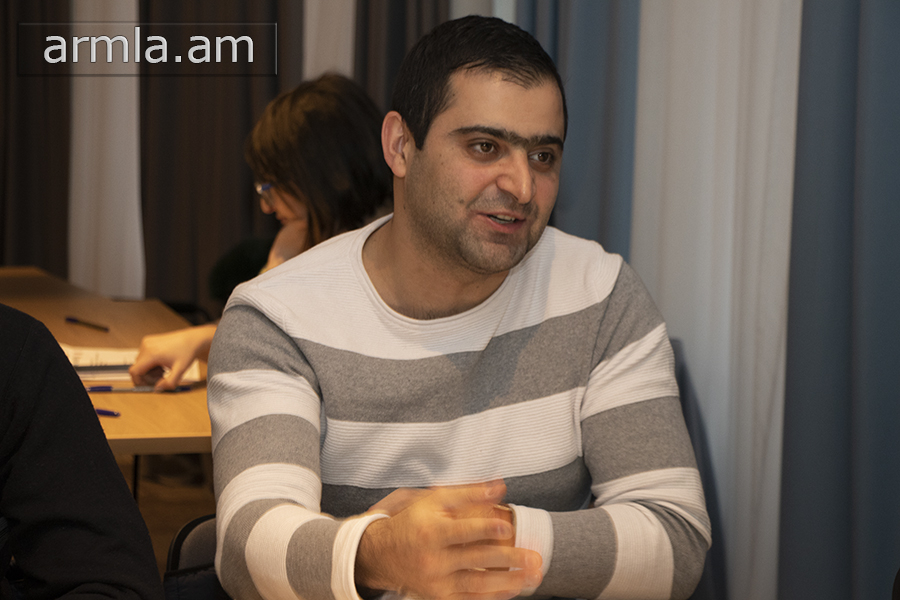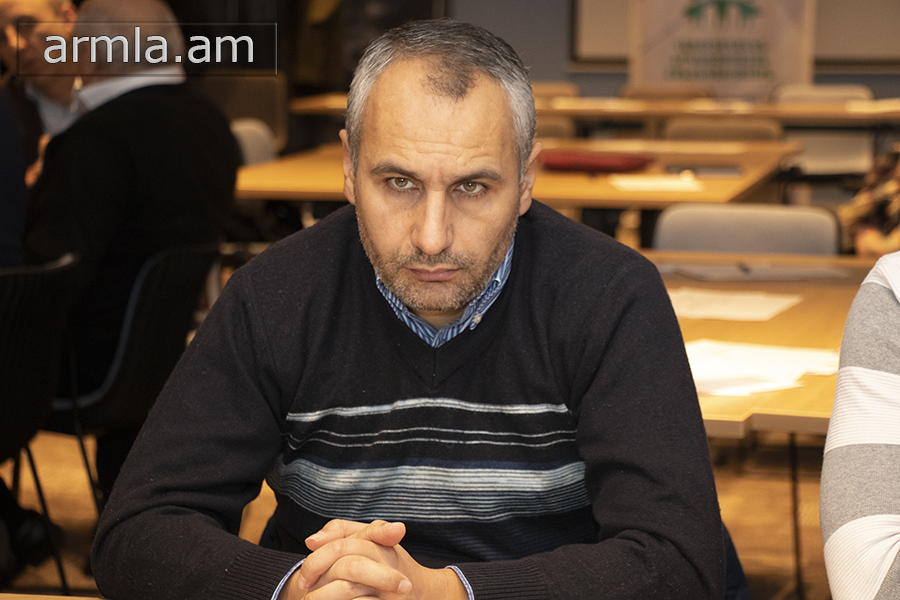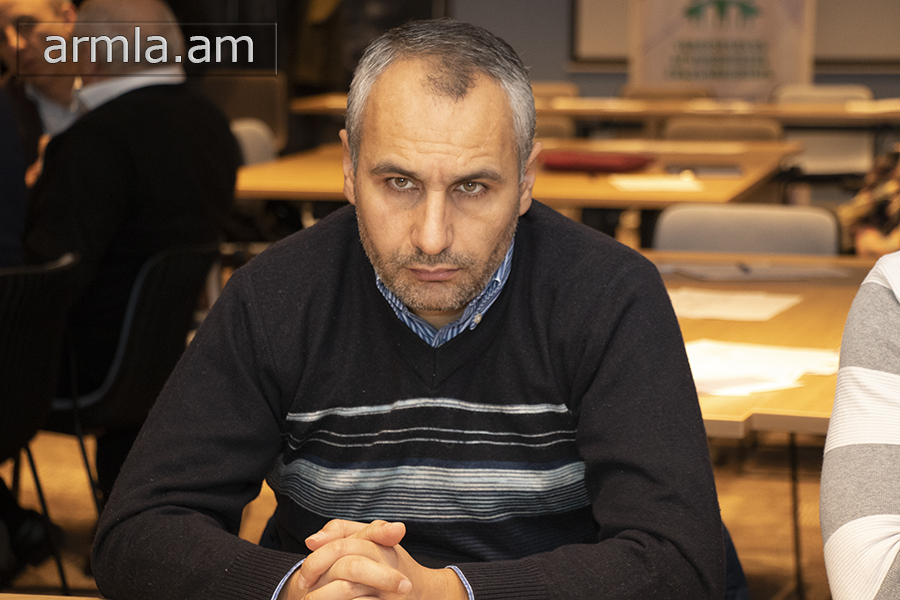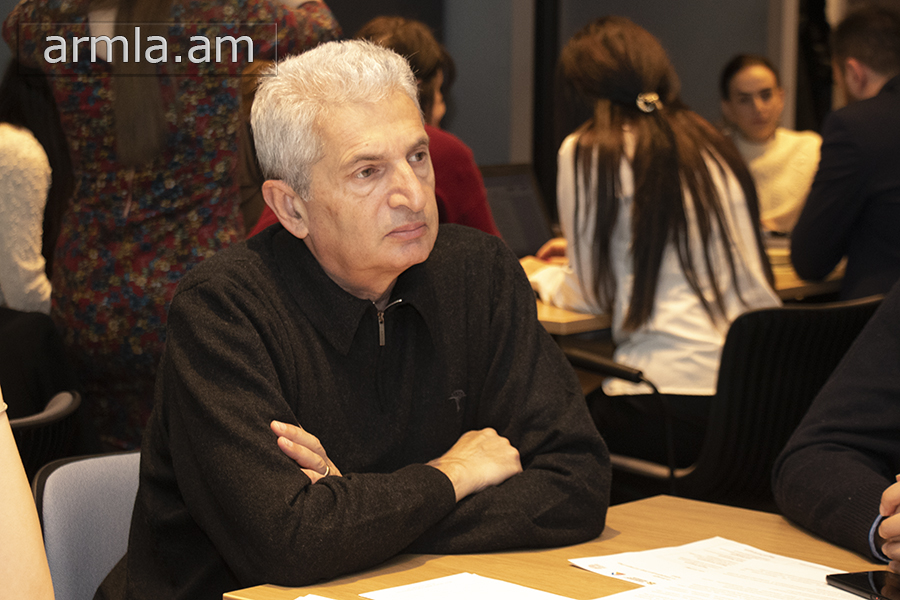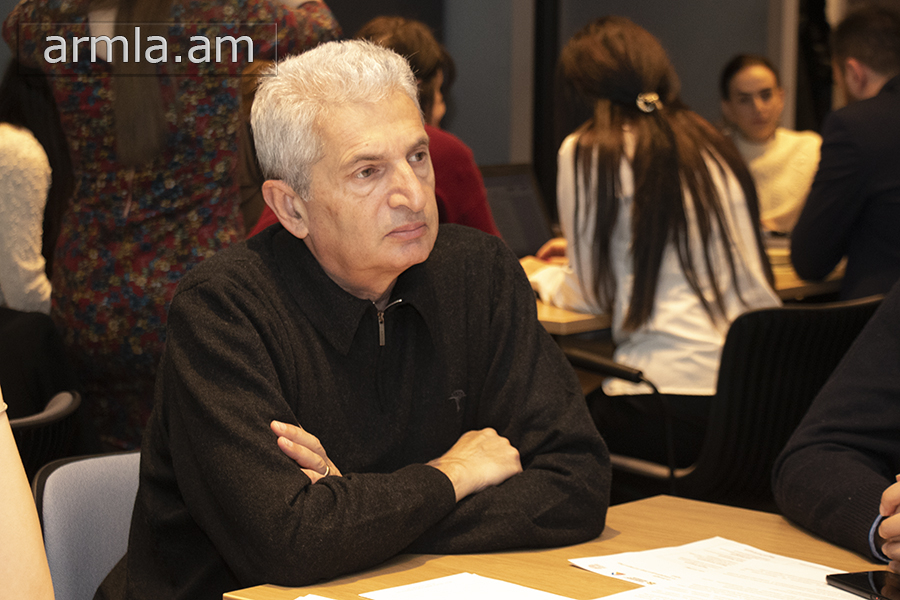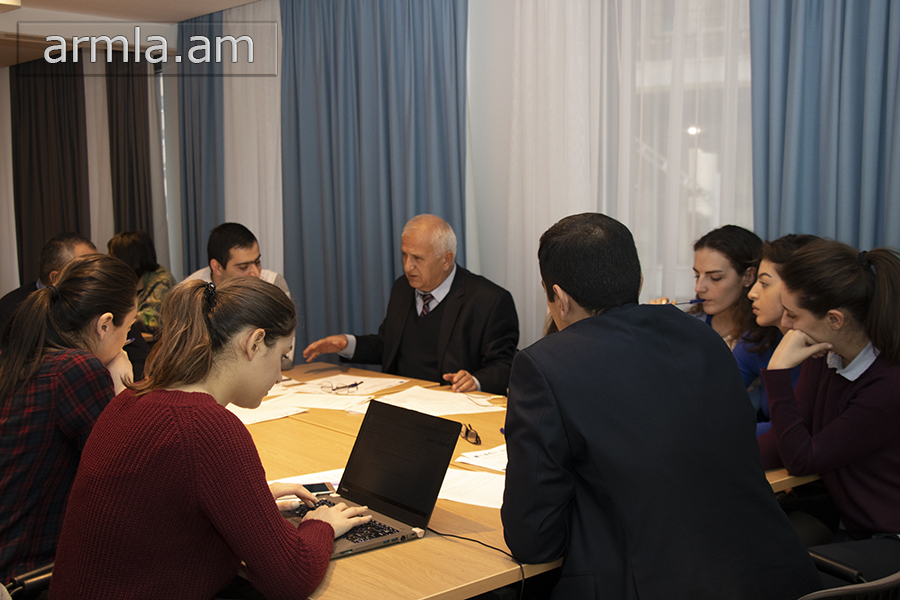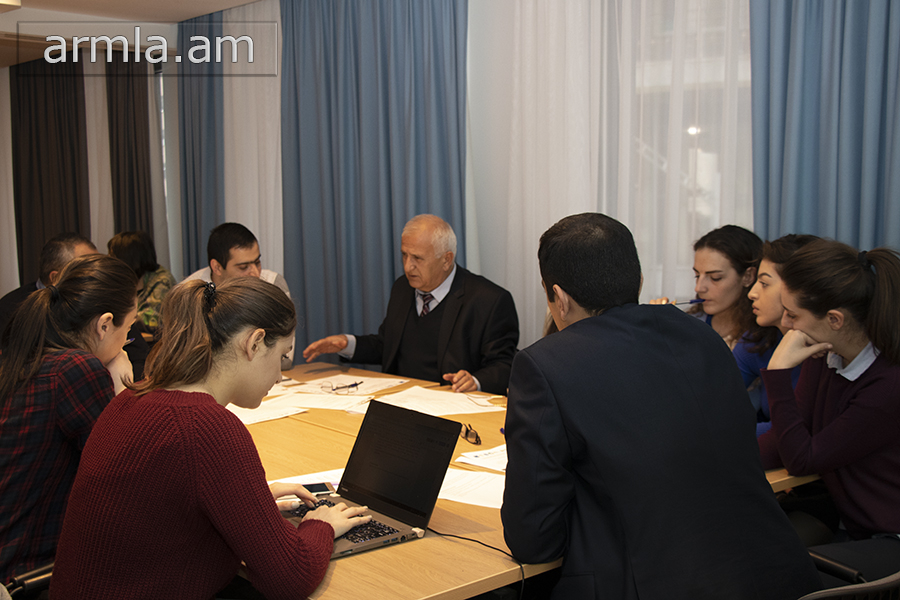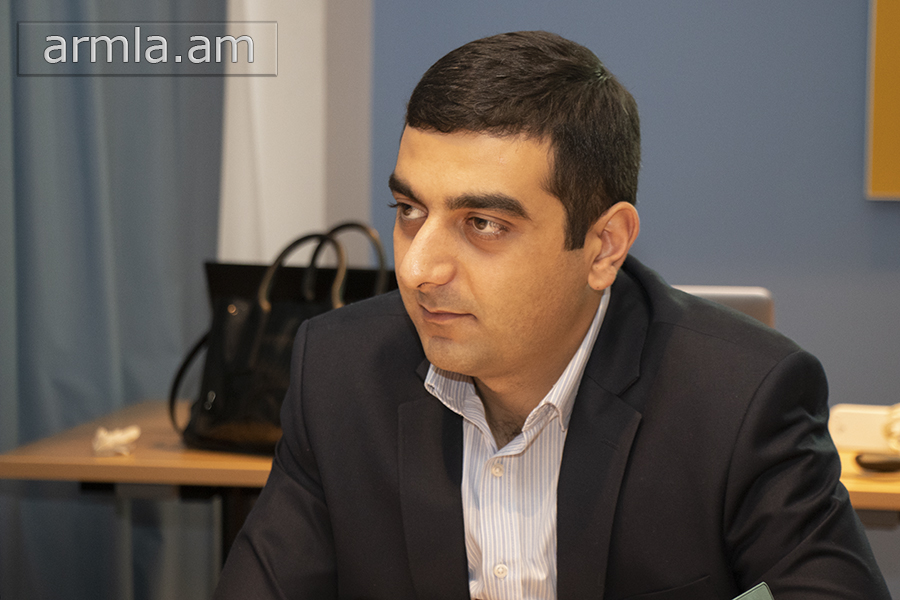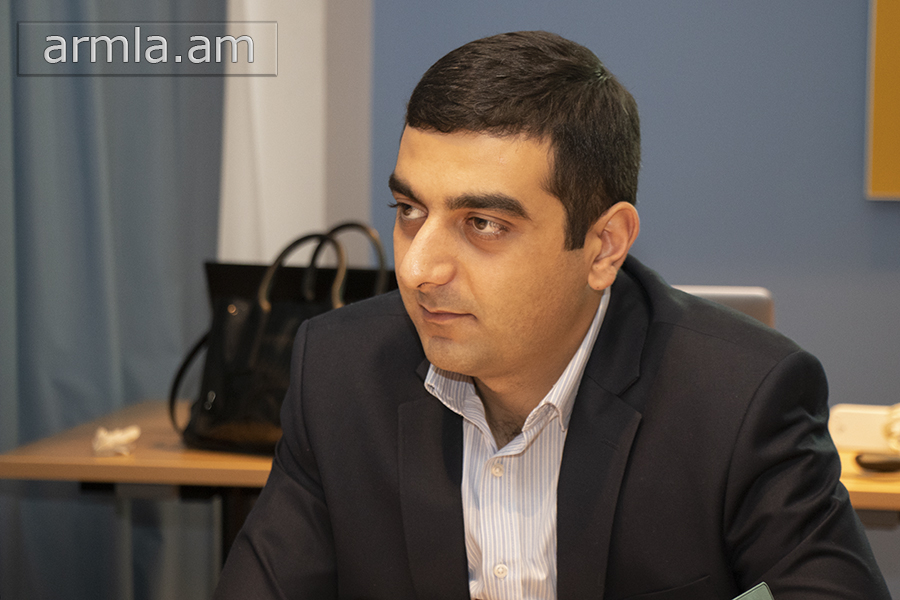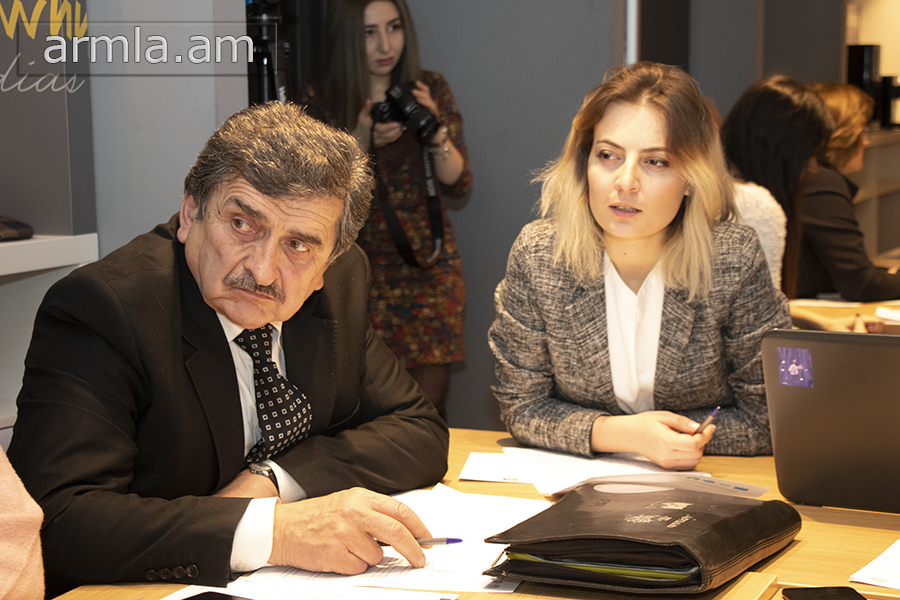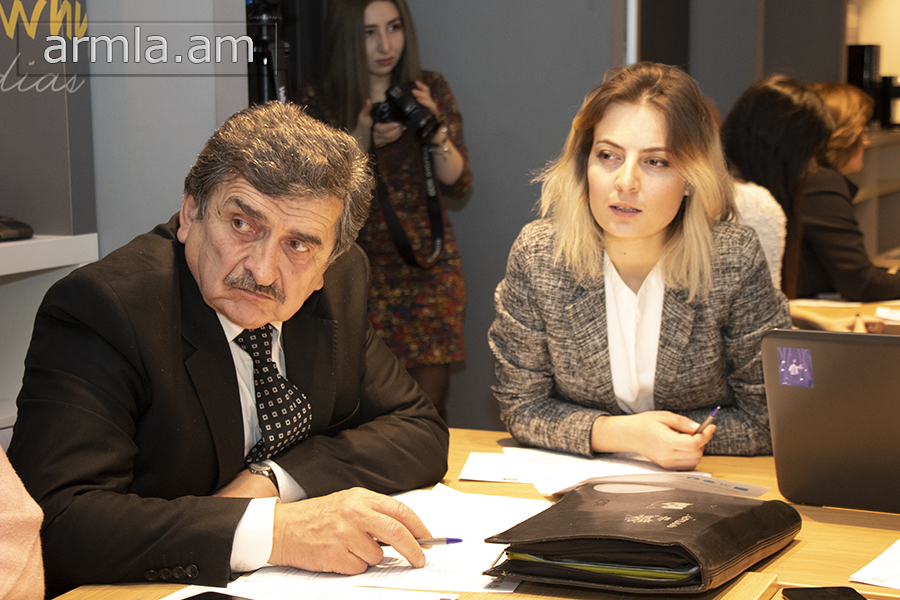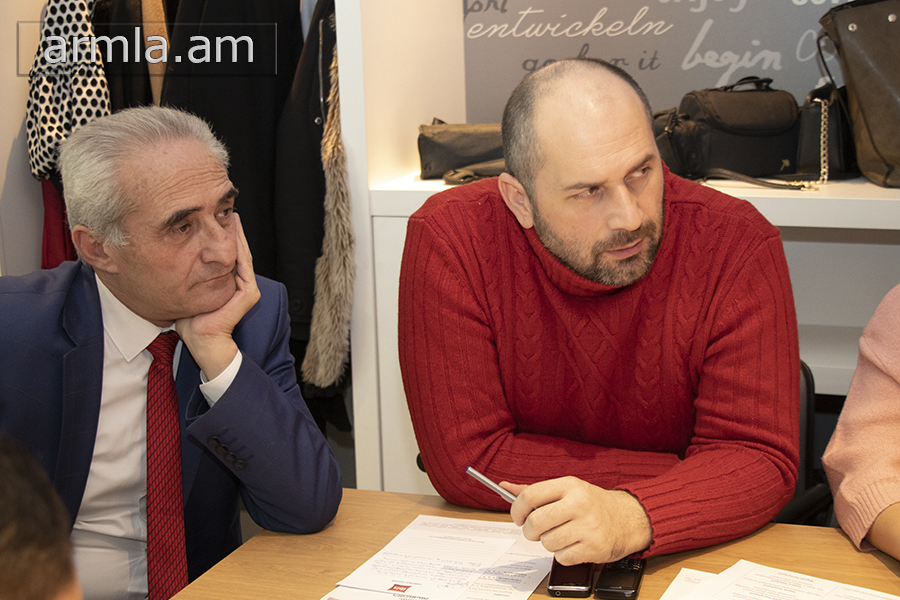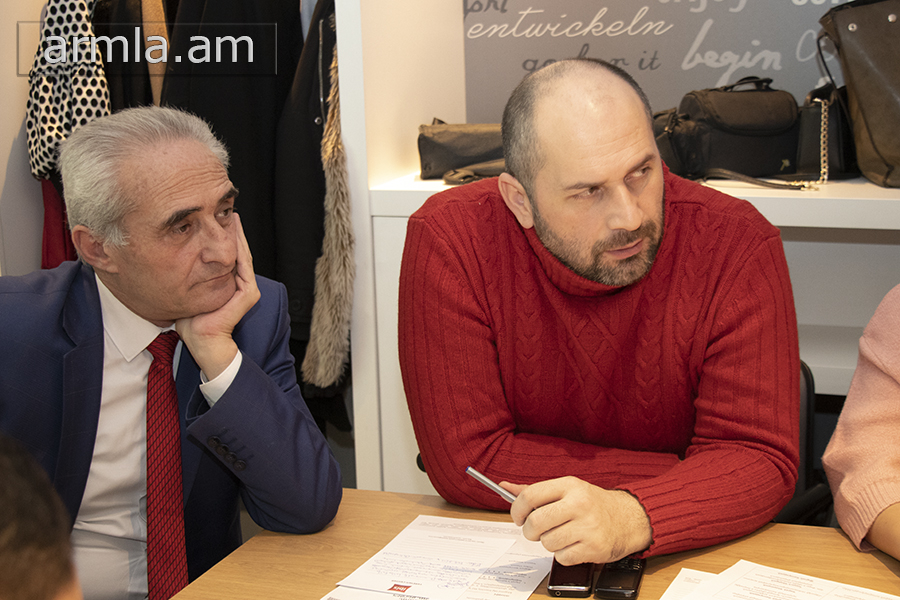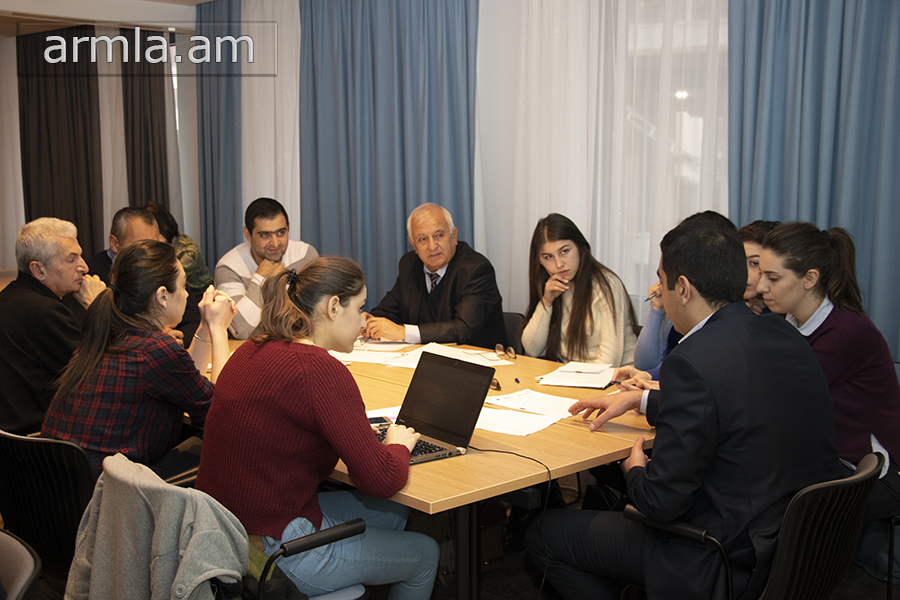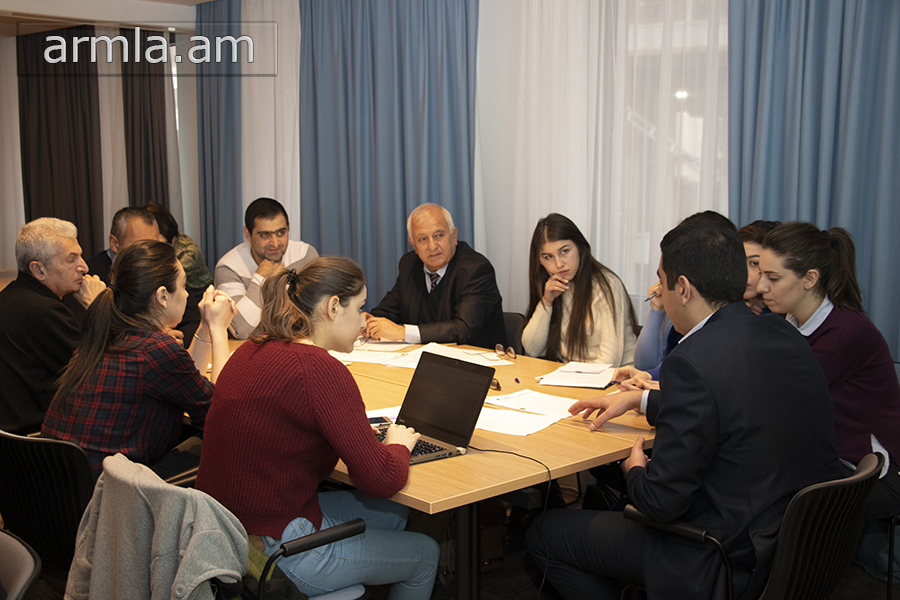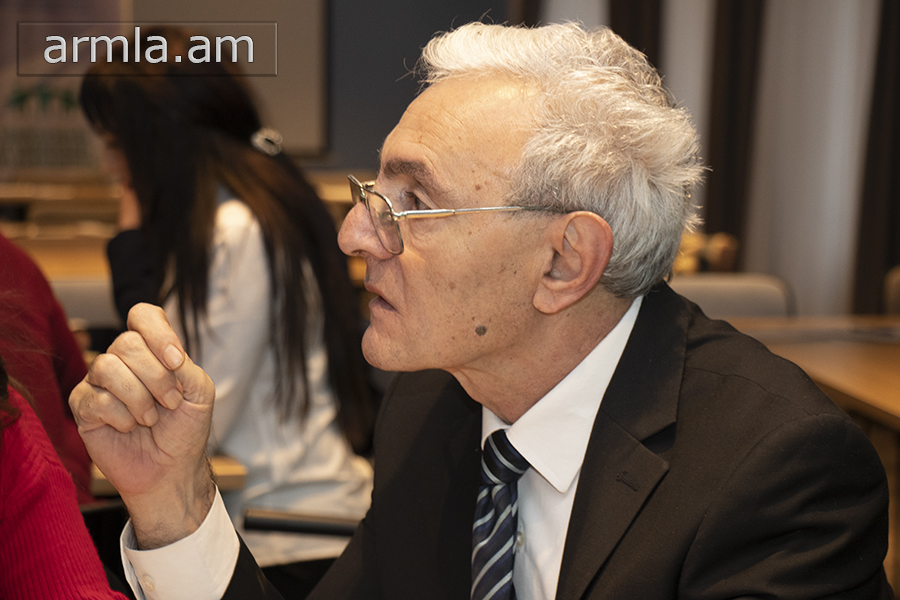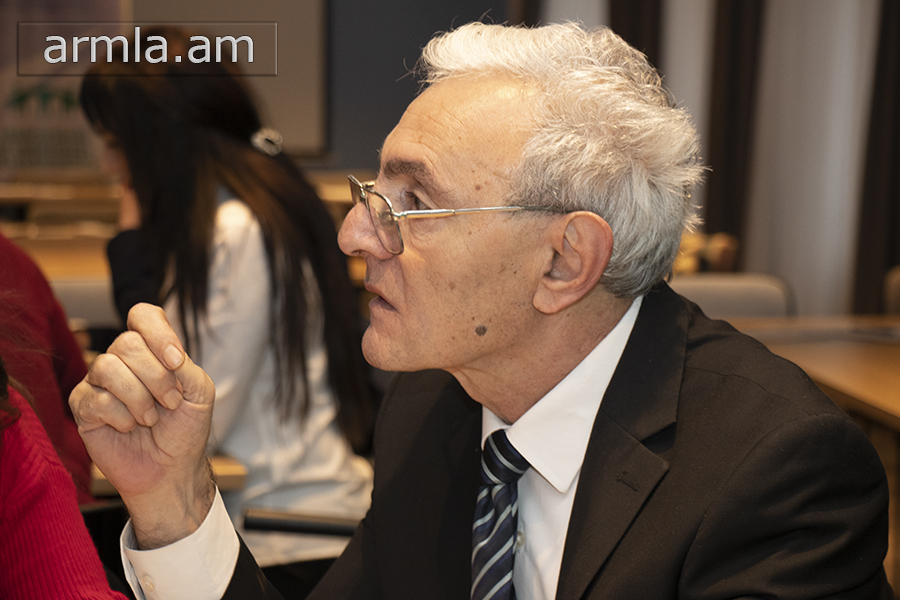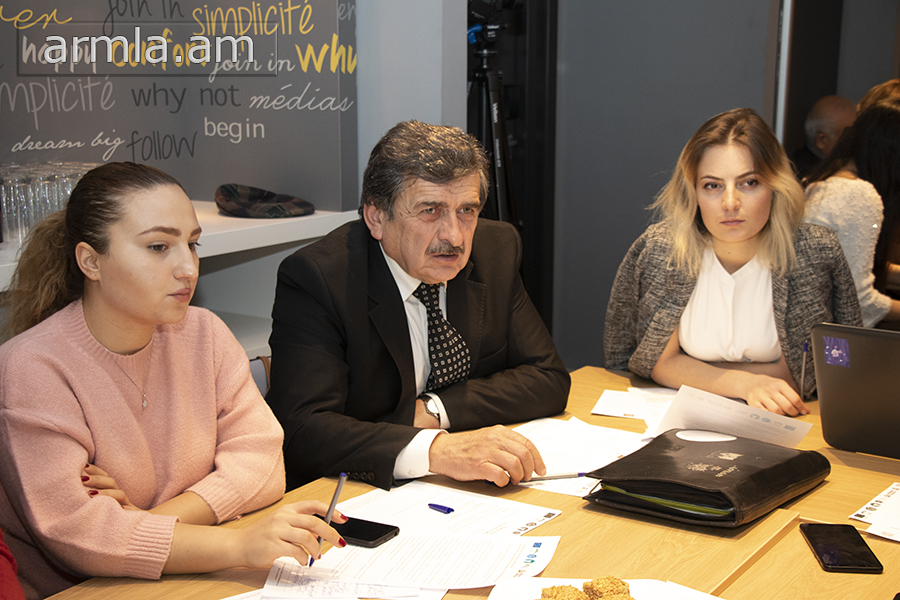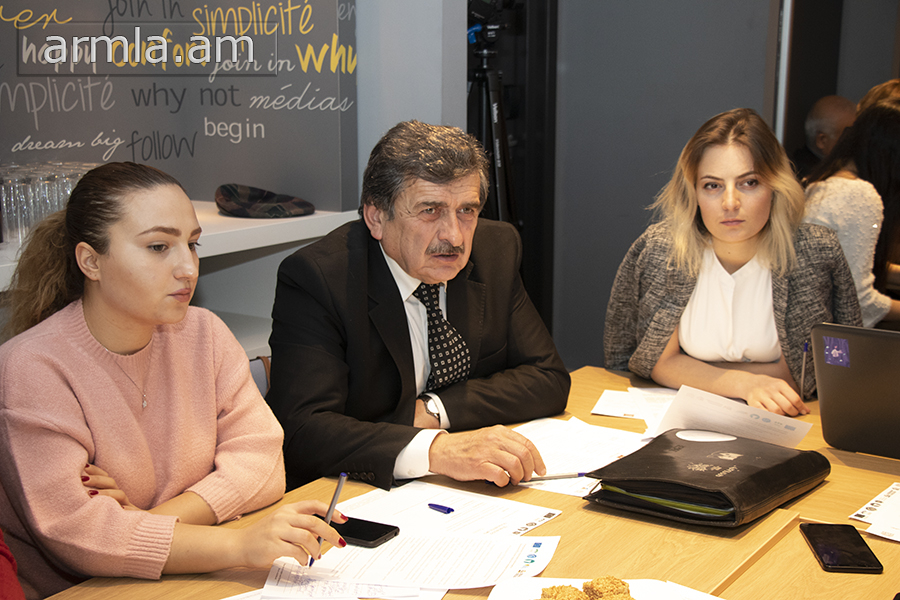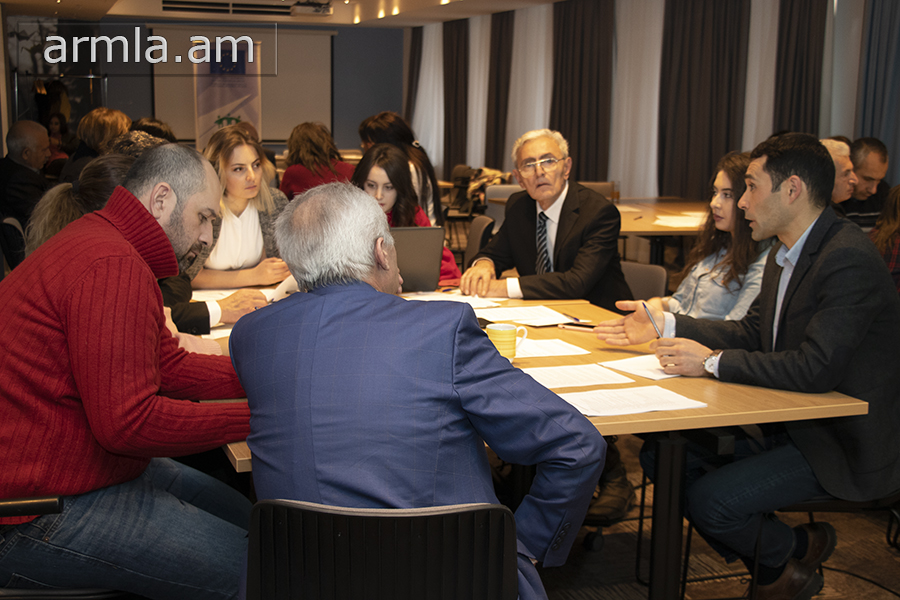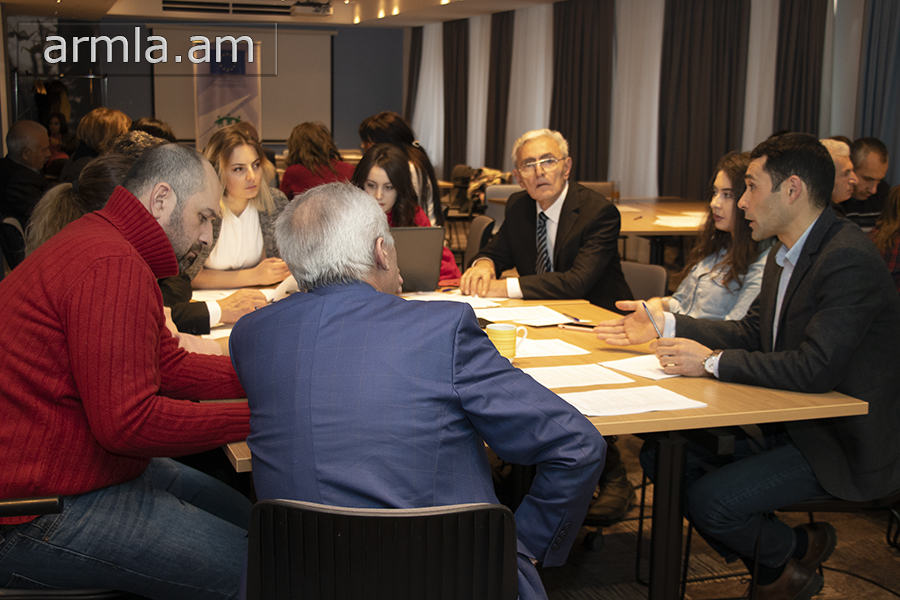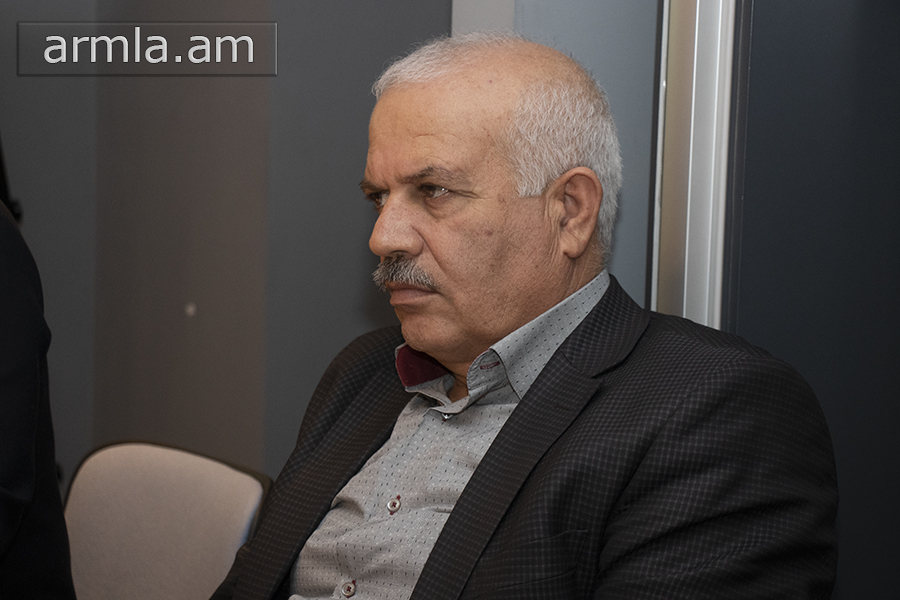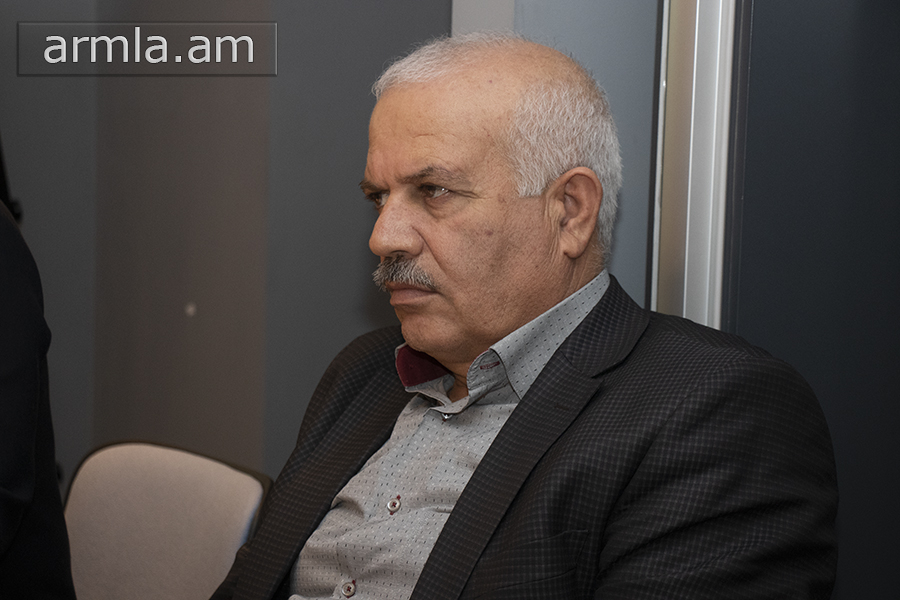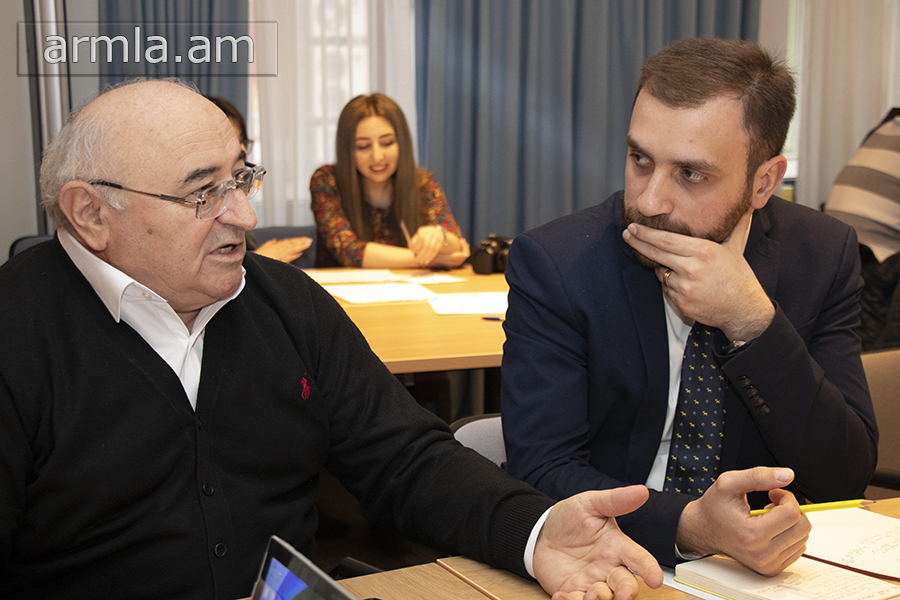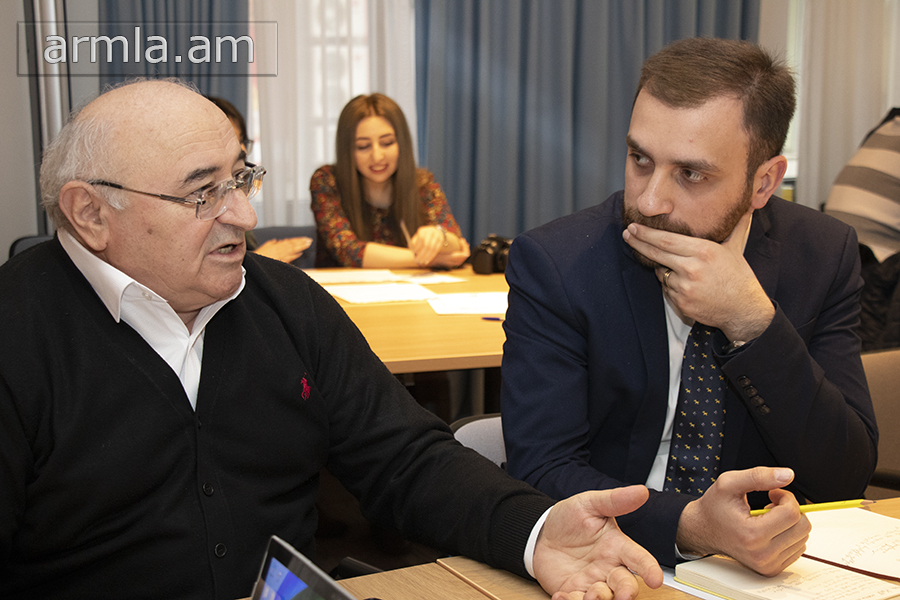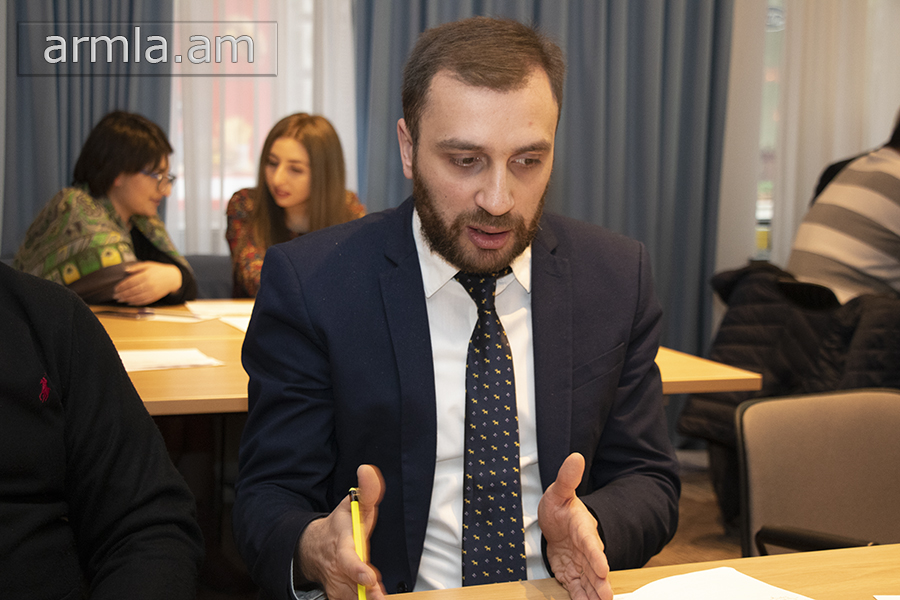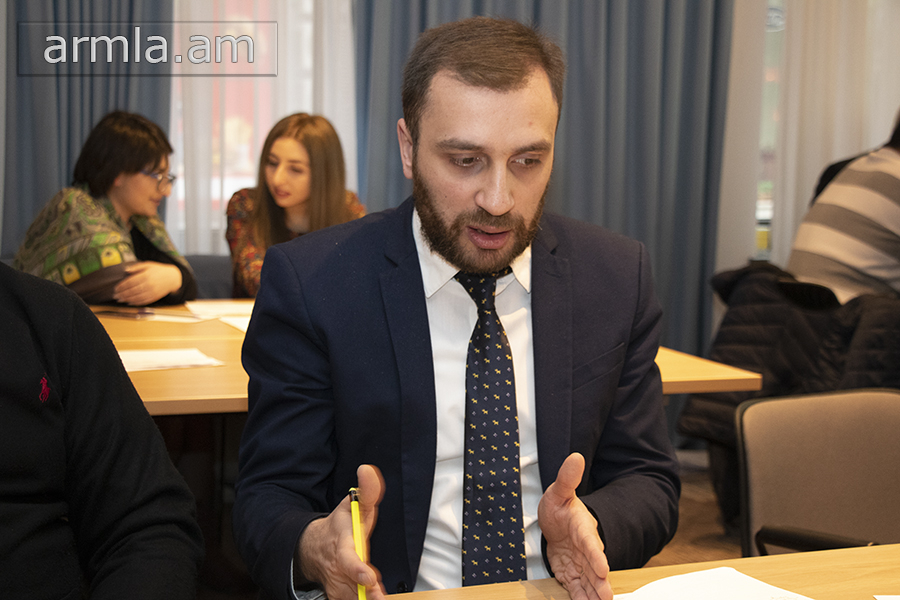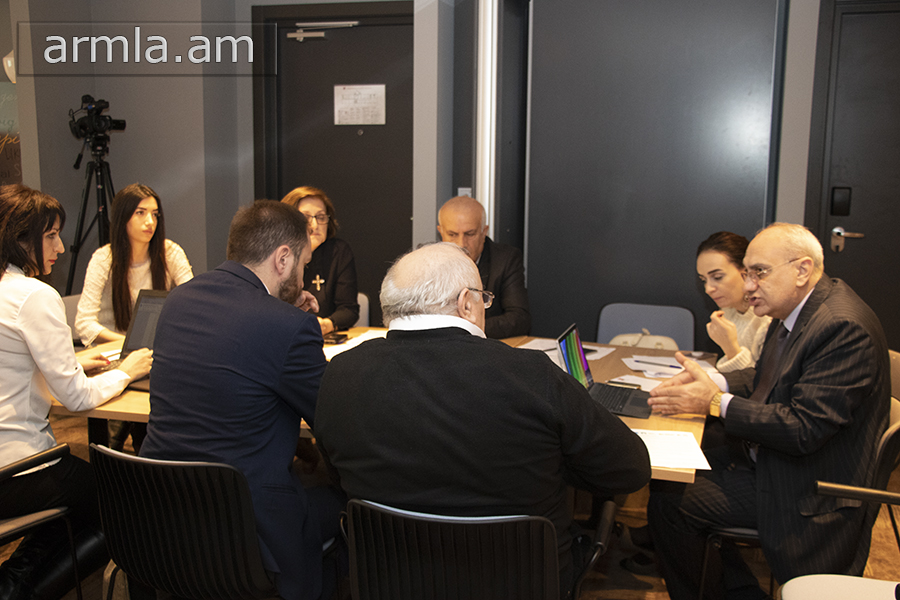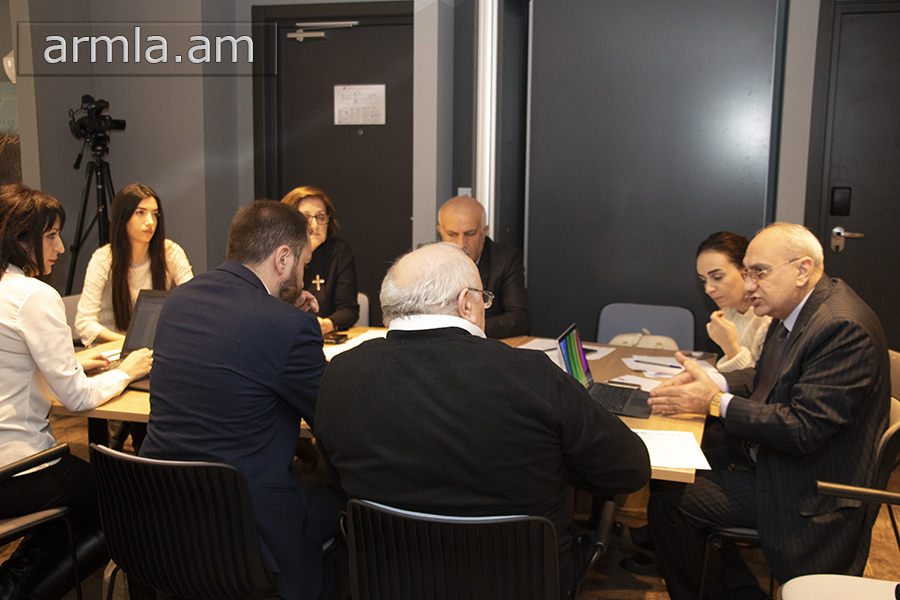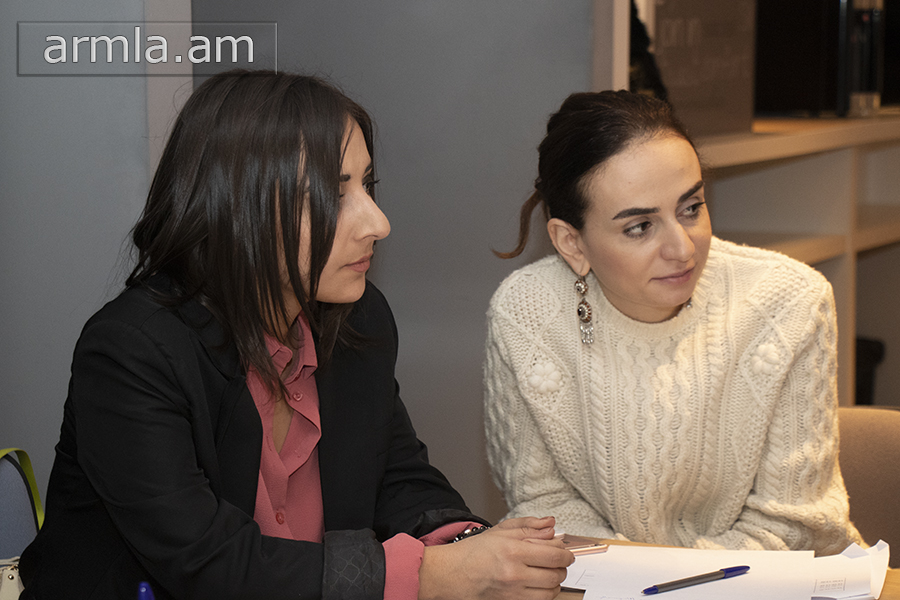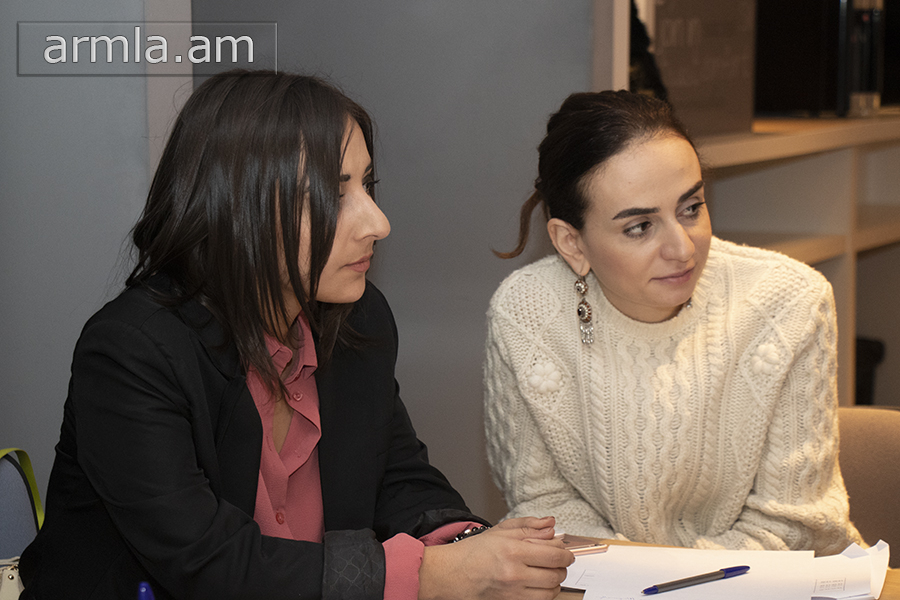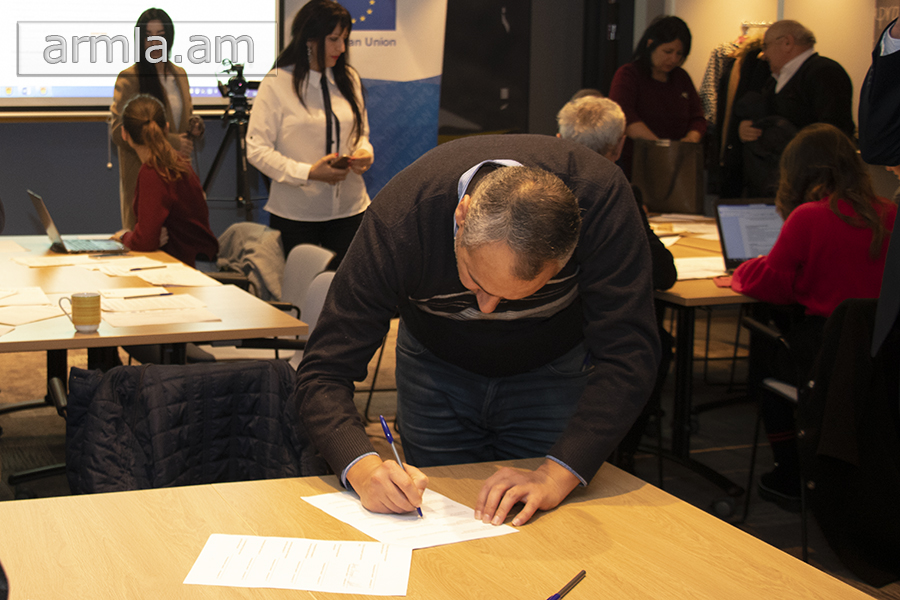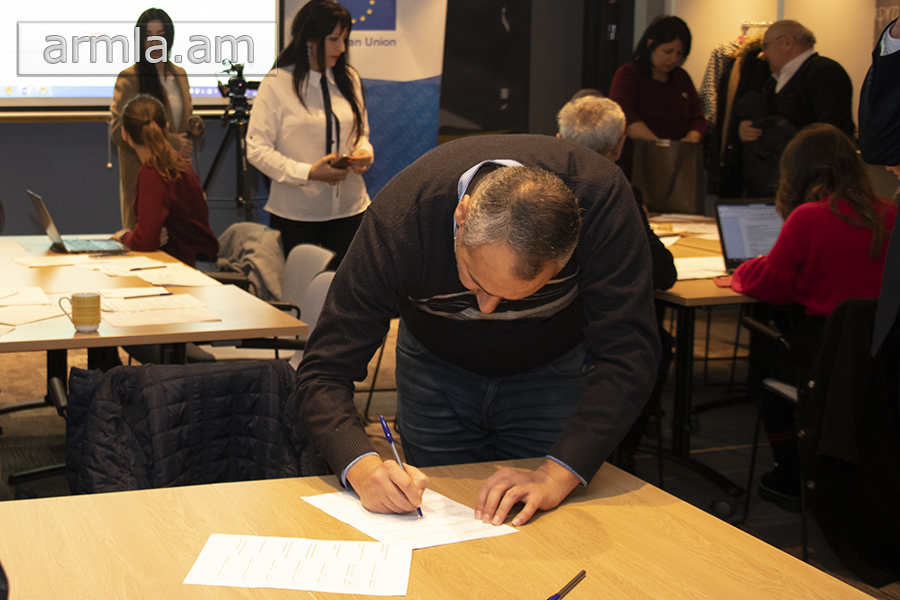On 20 December 2018, a discussion-seminar in the scope of the “New Strategy for the Efficient Development of the SME Sector of Armenia” dedicated to the draft law on making changes and additions in the Tax Code and the new strategy of the SME sector development took place.
The project is implemented in the scope of a grant allocated within the “Commitment to Constructive Dialogue” project funded by the European Union.
The rules and regulations and the rotation order of the governing board chairman of the Armenian Business Coalition were presented and approved at the event. Then, the memorandum of the establishment of the coalition was signed. 27 civil society organisations having business membership and supporting business interests united efforts in the Armenian Business Coalition.
Hakob Avagyan, the Deputy Minister of Economic Development and Investments, attached importance in his welcome speech to the capacity building of the institutions representing business interests, having institutional dialogue between the government and CSOs:
“We have a great need for strong, well-organised institutions, coalitions representing business interests that would have dialogue with us and would help. We will inform about the existing issues soon so that we can have better and more favourable economic environment through legislative changes,” H. Avagyan said.
Karen Zadoyan, the “Commitment to Constructive Dialogue” Project Manager and the President of the Armenian Lawyers’ Association, also attached importance to creating a bridge and cooperation between civil society organisations and the government:
“That cooperation can be based only on professional abilities. The higher the expert potential of the CSO, the bigger its influence on business policies. I call on everyone to be active in their participation in public monitoring implementation and policy development, as well as the processes of influencing them,” K. Zadoyan said.
Karen Petrosyan, the President of the Shirak Chamber of Commerce and Industry and a member of the coalition implementing the “New Strategy for the Efficient Development of the SME Sector of Armenia” project, noted that institutional development is in the foundation of the project:
“The bigger the institutional development, the less depends on the person. Our main idea of the project is for the SME sector to be at the stage of institutional development and not to be dependent on individuals, that is, when there are a working legal system and effective business support mechanisms,” he said, adding that this project had two important components: The Armenian Business Coalition will be created and developed, and the new SME strategy with an action plan clear to all beneficiaries will be developed.
The founding members of the Armenian Business Coalition are: Shirak Chamber of Commerce and Industry, Civic Development and Partnership Foundation (CDPF), Association of Social Enterprises of Armenia (EITI), “Regional Business Center” Business Support NGO, Impact Business Club (AGA), and Business Support Office (GIS). Today, 27 more organisations joined them.
The “Commitment to Constructive Dialogue” project is implemented with the financial support of the European Union by a consortium of civil society organizations, which are the “Armenian Lawyers’ Association” NGO, Agora Central Europe o.p.s (an NGO from the Czech Republic), the “Armenian Center for Democratic Education-CIVITAS” NGO, the “International Center for Human Development” Public Organization, the “SME Cooperation Association” NGO and the Union of Communities of Armenia.
The overall objective of the project is to enhance the influence of CSOs and their coalitions (networks) on the public policy process. This will enable the organizations (that already work in target coalitions) to gain new resources, unite civil society experts and encourage them to participate in the formation of local and national policy agenda, identify the common problems and priorities and to apply to the government with constructive and strategic policy initiatives.
In the scope of the project, sub-grants will be allocated to CSOs and CSO coalitions, aiming at public policy development and achieving tangible results in the 9 target sectors: justice, human rights, public finance management, business, education, social sector: social inclusion of children with disabilities, agriculture, economy, energy.

